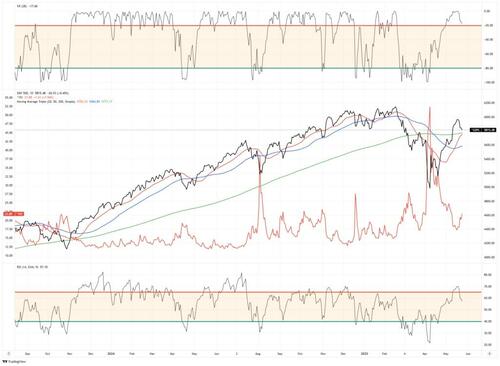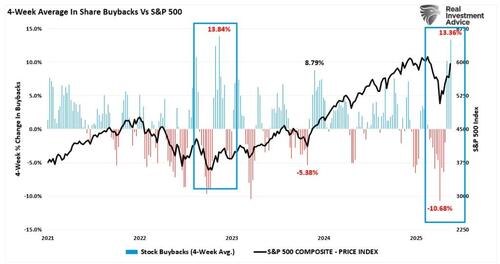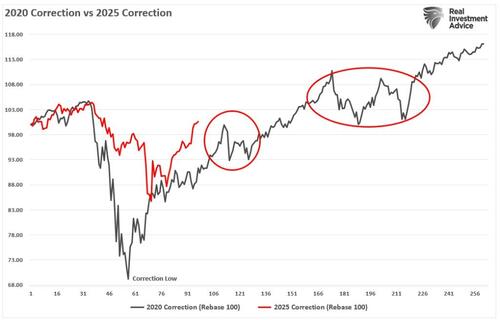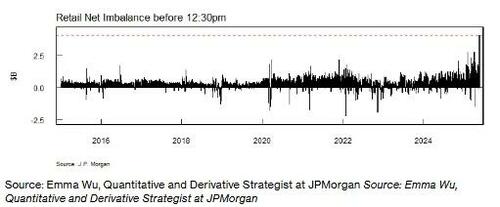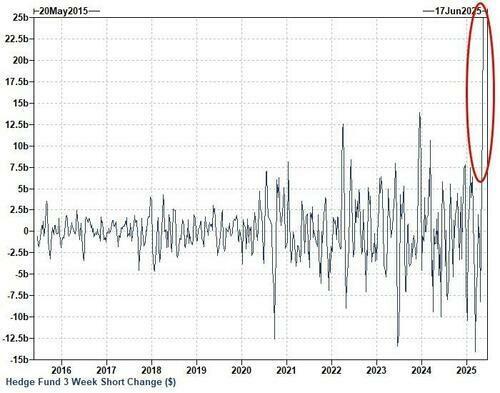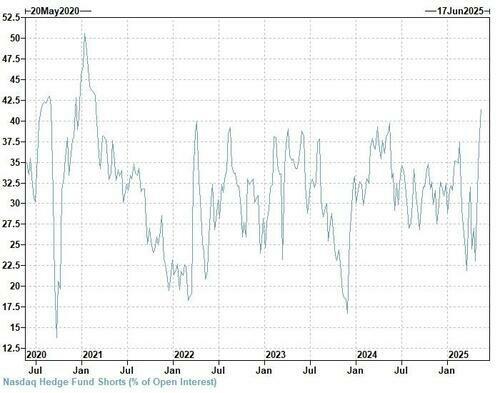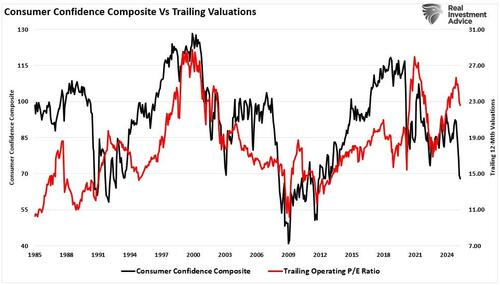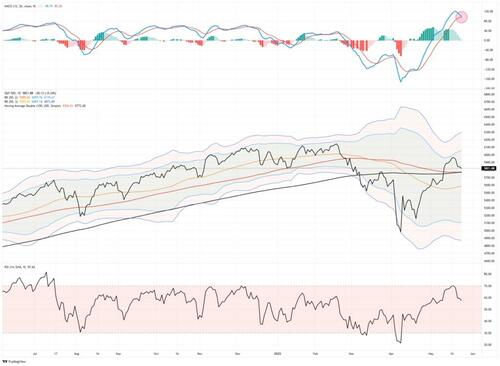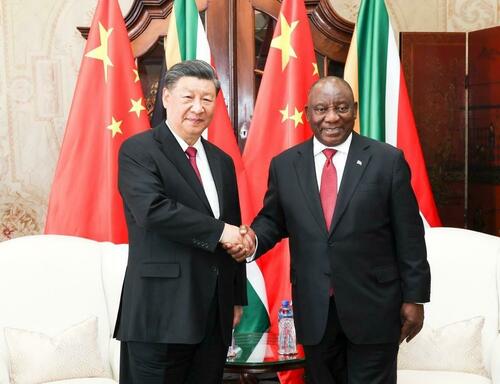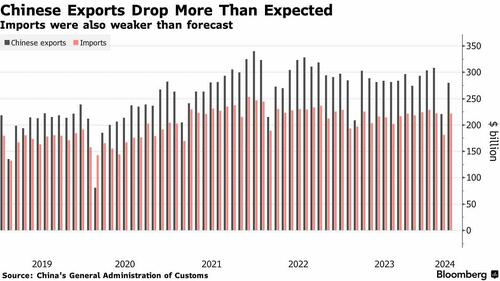Celibacy is always, shall we say, an affront to what man normally thinks. It is something that can be done, and is only credible, if there is a God and if celibacy is my doorway into the kingdom of God.
Distinction Matter - Subscribed Feeds
-
Site: Henrymakow.comThis video is from March 2024 but more relevant every dayOct 7, 2024 was a typical Zionist false flag in the tradition of Pearl Harbor, USS Liberty and 911. Zionist were responsible for giving Hitler power and murdering millions of Jews to force the rest to go to Israel. Their ultimate agenda is 1) the genocide of all those who do not accept satanist (Masonic) Jews (Communists and Zionists) as God. 2) The destruction of Western (Christian) Civilization using gratuitous war as the excuse. The world is entering World War Three because of another Zionist hoax!John Hankey--"Israel was behind the attacks of October 7. Hamas is run by Israeli Secret Intelligence, the Mossad. The fact that the Mossad supplied Hamas with billions of dollars in cash is NOT in dispute. ALL sources say that the Israeli military stood down (was completely absent) for 6 hours. The best evidence indicates that 94% of the civilians were killed by the military to justify the genocide in Gaza. Israeli veterans say so. 50 minutes."--
 Funny how the faux opposition Conservatives neglected to mention thisOver 80 percent of Israelis endorse 'forced expulsion' of Gaza's population: PollNetanyahu says a condition for ending the genocide in Gaza is the implementation of a US plan to expel the residents of the strip"Eighty-two percent of those surveyed expressed support for the forced expulsion of residents of the Gaza Strip, and 56 percent supported the forced expulsion of Arab citizens of Israel," Haaretz cites the poll as saying, marking a sharp rise from a poll asking the same questions 20 years ago.--In 2015, globalist traitor and Castro lovechild Justin Trudeau quietly revealed the endgame for Canada, the UK, and Australia..."Canada is the first post national state..there is no core national identity in Canada."--
Funny how the faux opposition Conservatives neglected to mention thisOver 80 percent of Israelis endorse 'forced expulsion' of Gaza's population: PollNetanyahu says a condition for ending the genocide in Gaza is the implementation of a US plan to expel the residents of the strip"Eighty-two percent of those surveyed expressed support for the forced expulsion of residents of the Gaza Strip, and 56 percent supported the forced expulsion of Arab citizens of Israel," Haaretz cites the poll as saying, marking a sharp rise from a poll asking the same questions 20 years ago.--In 2015, globalist traitor and Castro lovechild Justin Trudeau quietly revealed the endgame for Canada, the UK, and Australia..."Canada is the first post national state..there is no core national identity in Canada."-- Funny how the faux Opposition Conservatives neglected to mention this.RFK Jr lays bare shocking state of America's young... with most now too sick or weak to serve in armed forces-Alliance for the Union of Romanians (AUR) leader George Simion is disputing this weekend's national election results, citing an "orchestrated effort to manipulate institutions, direct media narratives, and ultimately impose a result that does not reflect the sovereign will of the Romanian people."-Poll: 88% of Americans Want Pharma Held 'Financially Responsible' for Vaccine InjuriesAmericans want better vaccine safety oversight, more stringent clinical trials and greater Big Pharma accountability, according to a poll conducted this month by the Center for Excellence in Polling and commissioned by the Foundation for Government Accountability.-
Funny how the faux Opposition Conservatives neglected to mention this.RFK Jr lays bare shocking state of America's young... with most now too sick or weak to serve in armed forces-Alliance for the Union of Romanians (AUR) leader George Simion is disputing this weekend's national election results, citing an "orchestrated effort to manipulate institutions, direct media narratives, and ultimately impose a result that does not reflect the sovereign will of the Romanian people."-Poll: 88% of Americans Want Pharma Held 'Financially Responsible' for Vaccine InjuriesAmericans want better vaccine safety oversight, more stringent clinical trials and greater Big Pharma accountability, according to a poll conducted this month by the Center for Excellence in Polling and commissioned by the Foundation for Government Accountability.-
Today, more than 130 children and elderly men died due to the severe famine in the Gaza Strip.This is what we ate today because of the unavailability of wheat.. Lentil bread. We bought some lentils, ground them, kneaded them and baked them, as an alternative to wheat. It tastes very bad and smells bad, but there is nothing else for us to eat so we do not die of hunger. No one can imagine what we are going through..A Way to Help Gaza-Chinese point out that MAGA hats are made in China-Thomas Stone--CCP China has heavily weaponized its export-driven industriesCCP China works with its nation-state allies to send hundreds of billions of dollars worth of exports through their proxy Nations to help minimize on paper their massive trade surpluses with the West.There's no such thing as fair trade when a nation transacts with a weaponized existential enemy. Especially when that enemy is being outright dishonest."-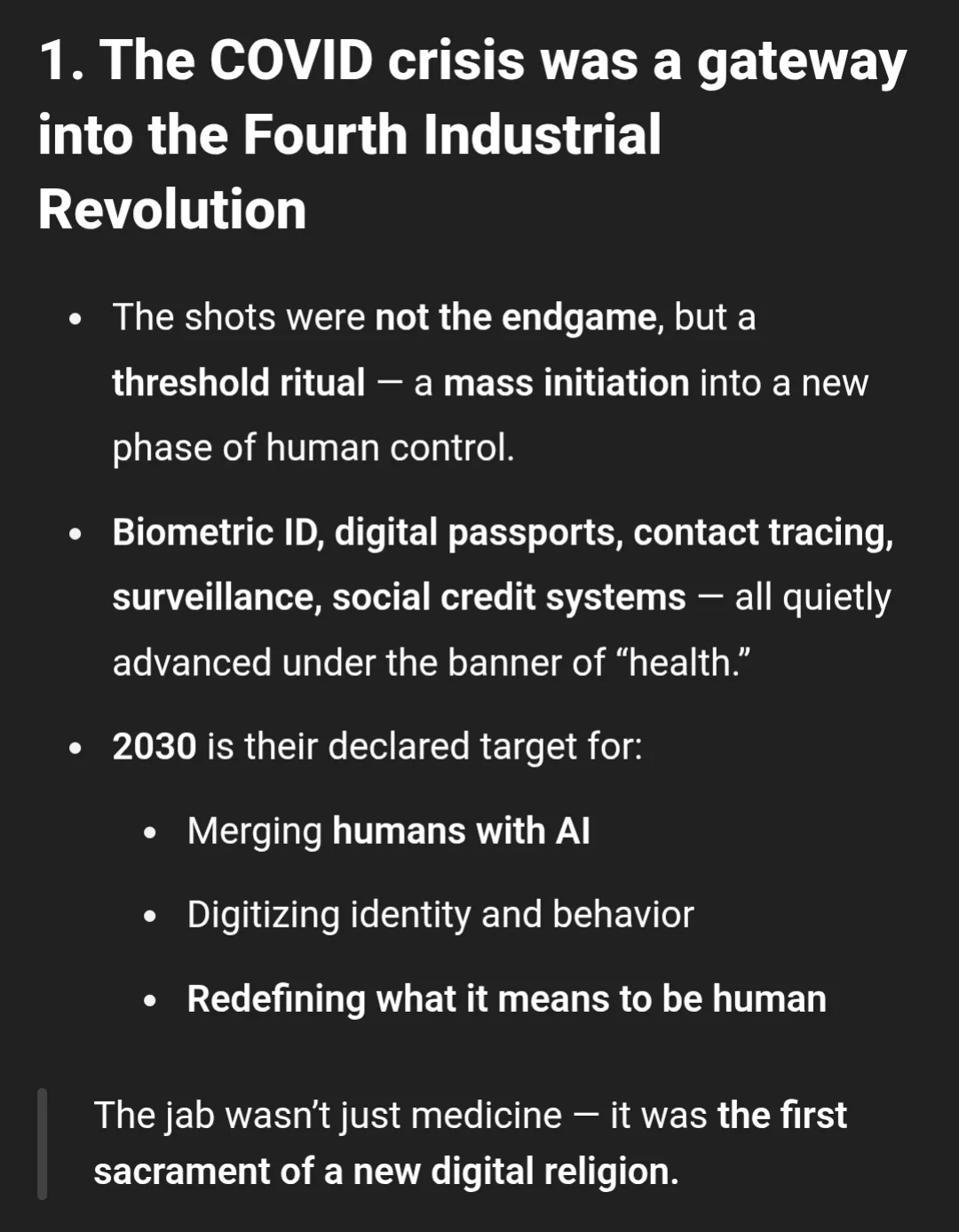 -The bottom 50% of the US shares less than 3% of that enormous pie, while the most fortunate 10% gorge on nearly all of it.-Child describes moment Israelis missile killed her grandmotherPlease send links and comments to hmakow@gmail.com
-The bottom 50% of the US shares less than 3% of that enormous pie, while the most fortunate 10% gorge on nearly all of it.-Child describes moment Israelis missile killed her grandmotherPlease send links and comments to hmakow@gmail.com -
Site: Zero Hedge$67 In France And $798 In US - Why Prescription Drug Prices Are So High In AmericaTyler Durden Sun, 05/25/2025 - 15:10
Authored by Lawrence Wilson via The Epoch Times (emphasis ours),
Prescription drugs cost more in the United States than anywhere else in the world. President Donald Trump and some bipartisan senators want to change that.
 Illustration by The Epoch Times, Shutterstock
Illustration by The Epoch Times, Shutterstock
Trump has so far issued several actions related to prescription drug prices. The latest, announced May 12, is a Most Favored Nation Prescription Drug policy, requiring pharmaceutical companies to offer their lowest price to U.S. customers.
An earlier order aimed to ensure that the middlemen in the drug supply chain can’t hold on to rebates provided by pharmaceutical companies and instead must pass savings on to Medicare beneficiaries.
In all, the president has taken at least a dozen actions to reduce prescription drug costs, while no less than nine Senate bills aim for the same results.
Some of these ideas have been introduced before.
Trump’s Most Favored Nation pricing plan was introduced near the end of his first term.
The plan was stalled by court challenges, and President Joe Biden dropped it shortly after taking office.
A plan to make vendors pass manufacturer discounts on to Medicare beneficiaries was proposed in 2020. Biden rescinded it before it took effect.
There have been modest successes, including a pilot program begun by Trump in 2020 to cap insulin costs for Medicare Part B beneficiaries at $35 per month. At the time, a single vial of insulin cost about $100 in the United States.
That program was a success, and the idea was later broadened to include all Medicare beneficiaries through the Inflation Reduction Act of 2022. By 2024, most major drug companies had voluntarily limited out-of-pocket expenses for insulin for all U.S. customers to $35.
Yet Americans still pay nearly three times as much for prescription medication as any peer nation, often even more.
Trulicity, a medication for Type 2 diabetics, was listed for $67 in France, according to a 2021 Government Accountability Report. In the United States, it cost $798.
Meanwhile, Remlivid, an oral cancer medication, was listed for $4,723 in Australia. In the United States, it was listed at almost five times that price: $22,048.
Why? One answer is that other governments leverage the power of their national health plans to control pricing, while the United States lacks a comprehensive national prescription drug strategy.
The solution, according to at least one senator, is to stop putting patches on a broken system and take a comprehensive approach to regulating the entire pharmaceutical supply chain.
How Others Do It
Some nations can negotiate low prices for prescription drugs because they have national health care plans, which gives them near complete control over the drug market. Here’s how that works for some, according to the Government Accountability Office.
Australia
Australia has a national health care system that is partly administered by state, territorial, and local governments.
Prescription drug pricing is set at the national level, starting with an assessment of the drug’s value. That assessment is made by Australia’s independent Pharmaceutical Benefits Advisory Committee, which evaluates new drugs for cost-effectiveness and may recommend them for inclusion on the list of approved medications under the national health plan.
That decision is made by Australia’s national minister of health, who then negotiates with the manufacturer to determine a price. Among other considerations, the health minister evaluates the impact of adding the drug on the country’s budget.
 In this photo illustration, an Australian Medicare card is displayed with prescription medicines in Sydney, Australia, on March 25, 2025. Since taking office in January, U.S. President Donald Trump has taken more than a dozen actions to lower prescription drug costs in the United States. Still, Americans pay nearly three times more for medications than other developed nations. Lisa Maree Williams/Getty Images
In this photo illustration, an Australian Medicare card is displayed with prescription medicines in Sydney, Australia, on March 25, 2025. Since taking office in January, U.S. President Donald Trump has taken more than a dozen actions to lower prescription drug costs in the United States. Still, Americans pay nearly three times more for medications than other developed nations. Lisa Maree Williams/Getty Images
Canada
Canada keeps prescription prices low in two ways. First, Canada’s federal government sets a maximum allowable price for each medication. The government bases this price, in part, on the therapeutic value of the drug. That value may be higher if the drug is the first of its kind, or lower if there are similar drugs already on the market.
Second, the country’s 13 provincial and territorial health plans negotiate pricing jointly with manufacturers, combining the power of their respective markets.
France
France has a national health care system that includes prescription drugs.
The French government negotiates prices with manufacturers based on an assessment of the therapeutic value of the drug. The country also places a cap on total prescription spending.
The Drawbacks
These arrangements significantly lower prescription costs for the government and for patients. But there are drawbacks.
When a U.S. insurance company can’t negotiate an acceptable price from a drug manufacturer, the insurer may choose not to cover the drug. However, another company will often cover it, so patients still have options.
However, when a drug is omitted from a national health plan, it may be more difficult to find it or afford it anywhere in that country.
For example, Signifor, a drug used to treat hormonal diseases, was not available in Ontario, Canada, according to a 2021 study by the Government Accountability Office. Some forms of diabetes drug Trulicity were not available in Australia. Cancer medicine Revlimid 5 milligram and 10 milligram capsules were not available in France.
Or, drugs left off the national coverage list may still be available, but at a higher price.
Drug shortages are another problem.
In countries with national health plans, pharmaceutical companies have less incentive to ensure supply. Companies will favor markets where there is more potential for profit.
“[Drug] shortages are a natural outcome of imposing prices divorced from free market processes,” Jeremy Nighohossian, a senior fellow at the Competitive Enterprise Institute, a libertarian think tank, told The Epoch Times.
Stephen Ubl, president and CEO of Pharmaceutical Research and Manufacturers of America, said, “Importing foreign prices from socialist countries would be a bad deal for American patients and workers,” in a May 12 response to Trump’s plan.
Read the rest here...
-
Site: Zero HedgeGOP Senator Calls For Investigation Into $4.7 Trillion In 'Untraceable' Treasury PaymentsTyler Durden Sun, 05/25/2025 - 14:35
In February, Elon Musk's Department of Government Efficiency (DOGE) uncovered $4.7 trillion in payments made by the US Treasury that are "almost impossible" to trace - as Treasury Account Symbol (TAS) identification codes were optional in the system. This left billions in payments blank and unable to be traced.
"Of the 1.5 billion payments that we send out every year, they are required to have a TAS, a Treasury Account Symbol. We discovered that more than one third of those payments did not have a TAS number," Treasury Secretary Scott Bessent told the House Appropriations Subcommittee on Financial Services earlier this month.
"In the Federal Government, the TAS field was optional for ~$4.7 Trillion in payments and was often left blank, making traceability almost impossible," DOGE announced via its X account. Thanks to DOGE, those "optional" days are over. “...this is now a required field, increasing insight into where money is actually going," DOGE added.
Major improvement in Treasury payment integrity going live!
— Elon Musk (@elonmusk) February 17, 2025
This was a combined effort of @DOGE, @USTreasury and @FederalReserve. Nice work by all. https://t.co/dpLmXRpufTSo while the TAS field is now mandatory, Sen. Eric Schmitt (R-MO) has called for an investigation into where the untraceable payments have been going.
"There's so much waste. There's so much fraud, There's so much abuse in our government," Schmitt told Fox News. "I'm glad there was a laser-like focus on it. We ought to make many of those reforms permanent, but there probably ought to be some investigations here about where this money actually went. I mean this is taxpayer money. People work hard."
In March. Sen. Rick Scott (R-FL) introduced a bill - the LEDGER Act - requiring the Treasury Department to track all payments.
"When you hear about this story that they didn't know where the money was going, it makes you mad because this is somebody's money, this is taxpayers' money when we have almost $37 trillion in debt, so this makes no sense at all," said Scott.
Sen. Dan Sullivan (R-AK) noted that the United States "paid out more last year on our debt, $36 trillion in debt, with $950 billion in interest going to bondholders all over the world, including in China. That $950 billion didn't go to build a bridge or an F-35. We paid more on the interest on debt than we did to fund our military."
"That is an inflection point that when most countries hit, you look at history, that's when great powers start to decline. So we have to get those savings."
-
Site: Zero HedgeTrump's Big Bill Is Beautiful For Areas With Many RetireesTyler Durden Sun, 05/25/2025 - 14:30
The proposal in the “Big Beautiful Bill” to add an extra deduction of $4,000 for filers collecting Social Security payments within certain income limits and for people age 65 and older could be a significant boon to areas of the country with a large share of older beneficiaries, according to Bloomberg calculations.
For instance, some of highest concentrations of retirees in the country are in Southwest Florida, the communities of the Villages in central Florida, parts of Arizona, and the upper peninsula of Michigan, all solidly red areas of the country.
As Bloomberg adds, in 2023, the latest data available, Florida’s 17th congressional district had more than 236,000 beneficiaries age 65 and older.
In aggregate, people in that congressional seat collected $533 million a month in Social Security payments that year.
The increase in the standard deduction in these areas with a high concentration of older beneficiaries would create a significant uptick in disposable income for parts of the US.
-
Site: Zero Hedge"Razor Blade Throat": China Reports COVID-19 Resurgence With Painful SymptomsTyler Durden Sun, 05/25/2025 - 14:00
Authored by Mary Man via The Epoch Times (emphasis ours),
China is experiencing a resurgence of COVID-19, with patients reporting symptoms of severe, burning throat pain, experts say.
 Residents visit a night market in Baocheng Road in Wuhan, Hubei Province, China, on June 3, 2020. Getty Images
Residents visit a night market in Baocheng Road in Wuhan, Hubei Province, China, on June 3, 2020. Getty Images
Zhong Nanshan, one of China’s leading pulmonologists and epidemiologists, said in an interview with China-based media on May 19 that the “razor blade throat” symptom is more pronounced in this wave of resurgence, accompanied by more frequent coughing.
“Razor blade throat” is a term used in China to describe severe throat pain, akin to swallowing shattered glass or razor blades.
Dr. Li Tongzeng, director of the Infectious Diseases Department at Beijing You’an Hospital, told Chinese media that the new wave of COVID-19, which began in March, is expected to peak in late May.
According to Zhong, the dominant strain in this wave is the Omicron XDV variant, which is highly transmissible but relatively less virulent. Early symptoms include fever, headaches, fatigue, a burning throat, and severe coughing.
He believes the epidemic is still in the “climbing phase” and is expected to last six to eight weeks and subside by the end of June.
Chinese netizens described their painful experiences with this new strain on Weibo, a Chinese social media platform closely monitored by the Chinese regime.
Netizens shared comments such as: “During lunch time a few days ago, a colleague was coughing so wildly I thought she choked on food. She said it was a lingering effect from this COVID wave. When I asked about her main symptom, she said ‘razor blade throat.’”
Other comments include, “I’ve been hit with razor blade throat and feel completely drained.”
“Post-COVID razor blade throat is brutal—swollen, painful, and I can barely speak. Any quick remedies?” another one read.
A female Beijing resident, infected for nearly 10 days, told the Chinese language edition of The Epoch Times: “I had a fever, sore throat, yellow phlegm with blood streaks, nosebleeds, cough, sneezing, a runny nose, dizziness, and no energy. It’s terrifying—I sneezed once and my nose started bleeding, which scared me to death. This round of COVID is too severe.”
Missing Data
The Chinese regime has faced long-standing accusations of concealing epidemic data, particularly regarding death tolls.
Although “rising COVID-19 infections” trended on Weibo, Chinese media downplayed the epidemic, and experts noted significant missing or uninformative data from the authorities.
Dr. Jonathan Liu, a professor at the Canadian College of Traditional Chinese Medicine and director of Kang Mei TCM Clinic and skeptic of data from the Chinese Center for Disease Control and Prevention (CCDC), said official data for March reported that seven people died from COVID-19 that month.
“With normal epidemic rates, such a low figure is implausible. Canada, with a sparse population and good sanitation, reported 1,915 COVID deaths from August last year to May this year—over 200 per month. How could China, with its dense population, have only seven deaths monthly?” Liu told The Epoch Times.
According to the CCDC, outpatient and emergency cases increased from 7.5 percent to 16.2 percent, while severe hospitalized respiratory infection cases rose from 3.3 percent to 6.3 percent.
Xiaoxu Sean Lin, an assistant professor in the Biomedical Science Department at Feitian College in New York and a contributor to The Epoch Times, said that the CCDC has failed to report the most important data.
He told The Epoch Times that the data provided by the CCDC only reflects the increasing positive rate of the new coronavirus, omitting four critical factors: the number of confirmed cases, hospitalization rates, severe case rates, and mortality rates. These are essential for understanding the true extent of the outbreak.
He said that the Chinese regime has in the past concealed too much information.
Surge of COVID-19 Cases in Asia
COVID-19 cases have also risen in Singapore, Thailand, Malaysia, Taiwan, and Hong Kong.
On May 8, Hong Kong’s Centre for Health Protection reported that over the past four weeks, key COVID monitoring indicators reached a one-year high, with 31 adult deaths.
Singapore’s health authorities noted on May 13 that cases from April 27 to May 3 surged by about 28 percent to more than 14,000, with a 30 percent increase in daily hospitalizations.
The Taiwan CDC reported that cases have risen significantly since May, with a peak expected in June.
Zhong said that from a pathogenic perspective, the COVID-19 virus may reduce its virulence to ensure its survival, but it is too early to judge whether it will become “flu-like” in the future.
He said that one thing is certain, however: The COVID-19 virus will not disappear.
Luo Ya, Xiaohua Gu, and Grace Song contributed to this report.
From NTD News
-
Site: RT - News
The association had reportedly been struggling to stay afloat given the stagnation in the country’s automotive sector
A German association bringing together companies linked to electric car production has filed for bankruptcy, the newspaper Die Welt reported on Sunday, citing court data. The organization represents a total of 450 companies from various parts of the world, including Mitsubishi and Kia, and acts as a lobbying group for them.
Founded 16 years ago, the German Federal eMobility Association (BEM) describes itself as a network of stakeholders along the entire electric car value chain and claims it is “actively driving the transition to a sustainable mobility and energy system based on renewable energy.”
According to Die Welt, its members have a turnover of $114 billion and employ around a million people in total. It also reportedly has its own parliamentary advisory board.
Read more EU car industry faces a ‘horror fall’ – Bild
EU car industry faces a ‘horror fall’ – Bild
Now, the “struggling” association has been assigned a provisional insolvency administrator by the Berlin-Charlottenburg insolvency court, the daily reported. It did not elaborate on the reasons that prompted the association to take this step. A BEM board member, Markus Emmert, declined to comment on the matter in response to a request by Die Welt.
Germany’s automotive sector has long been mired in stagnation. In March, Bosch, the world’s largest automotive supplier by revenue, announced additional job cuts potentially affecting thousands of employees.
Read more Germany destroying its car industry – Putin
Germany destroying its car industry – Putin
Bosch CEO Stefan Hartung attributed the decision to the sluggish global economy, the stagnating automotive sector, as well as increasing competition from China. The industry has also been seeing a slower than expected transition to electric vehicles, according to Hartung.
Shutdowns and bankruptcies have also been affecting major German car manufacturers. In January, Reuters reported that Chinese car giants were eyeing Volkswagen factories in Germany that had been slated for closure.
The previous government led by former Chancellor Olaf Scholz set a goal of having 15 million fully electric cars on Germany’s roads by 2030. However, according to the Federal Motor Transport Authority, as of January 1, only 1.6 million such vehicles were registered, accounting for just 3.3% of the nation’s passenger car fleet. Electric car sales collapsed after Scholz’s cabinet decided to end government subsidies for EV purchases following the budget crisis in 2023.
Earlier this year, Handelsblatt Research Institute (HRI) warned that the German economy is on track for its longest post-war recession. A third consecutive year of contraction is projected for 2025.
-
Site: PeakProsperityThe Big Beautiful Bloated Bill dampens economic confidence, with high 6.86% mortgage rates stifling housing demand. Sluggish bank credit growth signals deflationary pressures, challenging the consumer economy's resilience.
-
Site: Zero Hedge"This Is War": Catherine Austin Fitts On Land Grabs, The Evils Of CBDC, And Fighting 'The Most Invasive Form Of Tyranny That's Ever Existed'Tyler Durden Sun, 05/25/2025 - 13:25
Investment banker Catherine Austin Fitts sat down for a wide-ranging interview, in which she warned about the future of food security, digital financial surveillance via Central Bank Digital Currencies (CBDC), and fighting back against "the most invasive form of tyranny that's ever existed."
Sitting down with Breeauna Sagdal - Senior Policy Fellow at The Beef Initiative, Fitts paints a picture of modern society teetering between high-tech control and a rebirth of grounded living.
For starters, people need to take control of what they put into their bodies...
The Cost of Health in an Age of Wealth
Fitts recounted what we all know; just because you're rich doesn't mean you have two brain cells to rub together - noting that when she was an investment advisor, clients with $10–15 million brokerage accounts claimed they "couldn't afford" biodynamic or organic food.
"I would just be shocked," Fitts recalled. "You're financing the national security state through your brokerage account… and meantime you're eating food as… one ally said to me recently, 'Have you priced the cost of cancer lately?'".
In short, the wealthiest Americans often fail to connect financial decisions to physical well-being. "The health and wellbeing of my family is the basis of our family wealth," she said.
Food, Not Gold, as the Ultimate Asset
While gold has traditionally served as a hedge against financial instability, Fitts is now more bullish on beef. "You put gold in a vault, it doesn't grow. You put cows in a field… and they multiply," she told Sagdal. "They're the ultimate in increase."
This sentiment fits hand in glove with that of The Beef Initiative - the concept that investing in local, regenerative agriculture not only ensures food access, but represents a resilient form of wealth creation. In Fitts' opinion, families and communities should form long-term capital relationships with ranchers; a reversal of decades-long trends in corporate food centralization
Fitts is urging private investors to begin financing and building relationships with their nearest farmers and ranchers in order to maintain health, and mental clarity during the ongoing "war" on freedom.
"It's not just 'purchase and finance the capacity you need. It's more than that "" Fitts said. "You need be part of funding and organizing political efforts designed to protect your food supply. You need to do all these things, because this is war, and if you want to win you need to be healthy."
The war that Fitts refers to is neither kinetic, nor overtly seen. Rather, the effects of this silent war are felt and experienced through increased surveillance and a general sense that things are not okay—especially in the wake of the Covid-19 pandemic. And while the pandemic may have exposed the fragility of America's supply chains, Sagdal and Fitts address the origins of this fragility.
"How have we arrived in our current predicament, where our cattle volumes are at a seventy-year-low, where our food security has been hollowed-out, and our middle class is gone? What is the goal for the next phase, and how do we stop it?" asked Sagdal - tying into a recent interview Fitts gave to Tucker Carlson.
Fitts responds by sharing that people within central banking have used new technologies to centralize control.
"This is what Sir James Goldsmith was talking about, the global centralization of economic and political control," Fitts said, referring to a 1994 interview with Charlie Rose." It's continued for my whole lifetime. And, as we see this centralization of control, we witness the deterioration of the quality of life."
"[Globalization] uprooted the countryside, bloated the towns, destabilized the towns, and created terrible chaos," said Goldsmith, referring to the The General Agreement on Tariffs and Trade. "Under global trade agreements like GATT, millions of small farmers were displaced in favor of "efficient" industrial agriculture, "to satisfy an economic doctrine… We are worshiping the wrong god: economic index," Goldsmith continued.
CBDCs and the Coming Age of Programmable Money
The conversation delved into an interesting intersection; monetary policy and surveillance. According to Fitts - a (based) former Bush administration official, the push toward Central Bank Digital Currencies (CBDCs) represents not financial inclusion, but financial control.
Referencing public comments by BIS general manager Agustín Carstens, Fitts warned that CBDCs could give governments the power to dictate not just how money is spent - but if it can be spent at all. "If you're locked down and can't leave your house, your money won't work outside your house, "she said. "If they don't want you eating pizza, you can't eat pizza."
Carstens, in a widely viewed IMF panel, stated: "Central banks will have absolute control on the rules and regulations that will determine the use of [CBDCs]… and the technology to enforce that."
According to Fitts, this is essentially akin to the Chinese Communist Party's social credit score - a goal plainly stated by Bo Li, the Deputy Director of the IMF and former Assistant Director of the People's Bank of China. In short... CBDC is social credit on steroids.
"By programming CBDC [Central Bank Digital Currency], those money can be precisely targeted for what kind of people can own, and what kind of use this money can be utilized," Li calmly outlines. "For example, for food."
Fitts explains that all money and monetary policy will be an expression of a Central Bank liability…with the technology to enforce it. "In other words, it's not your money, it's our money. So, we can set the rules around how you use our money, and we can enforce it centrally. And what he was referring to was A.I. and software."
"We're talking about the most invasive form of tyranny that's ever existed on this planet," Fitts warns." What has been happening, you know, is this system has been slowly tightening around each of us. It's now coming to the point where it's more visible.
"Now we're talking about getting into something that's complete control, and of course you can't control the money in this way unless you can control the food supply," she continued, suggesting that this level of government control isn't possible unless they can control the food supply and the amount of land available for private use.
Land Grabs in the Wake of Disaster
Fitts alleges that recent crises - from the pandemic to natural disasters - have provided cover for rapid land centralization. "During stagflation… that's the perfect opportunity where the people who can print money can finance themselves grabbing a lot of land," she said.
Sagdal added that programs administered through HUD and tied to "resilient city" planning often mask community displacements under euphemisms like "strategic buyouts" or "community-driven relocation."
Watch the rest of the interview below, where Fitts and Sagdal discuss;
-
The Invisible Cattle Problem
-
Fraud, Entrainment, and Psychological Manipulation
-
A Battle Over the Brain — and the Plate
What to do?
Start by taking control of your food supply: skip the multinational-owned supermarkets marketing questionable products by buying rancher-direct.
Second, read the bombshell MAHA Report released last week by Health & Human Services and the White House to understand the blueprint for reshaping America's food supply chain, with local farmers at the center.
That's what we're trying to do here with the Beef Initiative; helping you and your loved ones to become less reliant on multinational corporations' hormone-laden slop. You need to know where your meat comes from. Know that it's clean.
The Beef Initiative's motto is "Shake your rancher's hand" for a reason; you need to know exactly where food is coming from, what their standards are, and pay close attention to what you're putting in your body. To do this, we need to support independent farms that adhere to the highest standards.
 Courtesy, Beck Ranch
Courtesy, Beck Ranch
As Fitts recounts in a perfect closer, reciting one of her favorite quotes from a Swiss doctor; 'The currency of the future will be relationships of trust."
Watch the entire interview below:
. . .
-
-
Site: Unam Sanctam Catholicam
On May 16, a 36 minute YouTube video was uploaded to the YouTube account "Pan African Dreams" containing a fabricated AI generated speech from Pope Leo XIV ostensibly to the President of Burkina Faso. The video was built from actual footage of Leo addressing journalists on May 12. The video used a "morphing" technique, whereby the lips of the pontiff are made to match the AI generated words.The BBC News Afrique broke the story on the deepfakes on May 15; a few days later, the Vatican News service issued its own warning and disclaimer about the fake video, denyting the authenticity of the alleged statements and reminding Catholics that authentic statements of the pope can always be found on vaticannews.va and the website of L'Osservatore Romano.This little incident serves as a reminder that the Vatican communications people are fully capable of responding immediately to call out false statements when it is proven that the pope did not say something he is alleged to have said. If the pope truly didn't say something, they possess the resources and willingness to issue a denial immediately. -
Site: Catholic ConclaveHe dodged the Vice-President and the mayor of Buenos Aires CityTension at the Te Deum on May 25: Milei avoided greeting Vice President VillarruelIn the midst of the formal ceremony for the Te Deum on May 25, President Javier Milei experienced a tense moment upon arriving at the Metropolitan Cathedral.The president avoided greeting the mayor of Buenos Aires City, Jorge Macri, and Vice President Catholic Conclavehttp://www.blogger.com/profile/06227218883606585321noreply@blogger.com0
-
Site: Zero HedgeSupreme Court Temporarily Shields DOGE From Freedom Of Information RequestsTyler Durden Sun, 05/25/2025 - 12:50
Authored by Matthew Vadum via The Epoch Times (emphasis ours),
The Supreme Court on May 23 temporarily blocked lower court orders requiring the Department of Government Efficiency (DOGE) to respond to freedom of information requests in a pending lawsuit.
 The U.S. Supreme Court in Washington on May 19, 2025. Madalina Vasiliu/The Epoch Times
The U.S. Supreme Court in Washington on May 19, 2025. Madalina Vasiliu/The Epoch Times
President Donald Trump issued Executive Order 14158 on Jan. 20, implementing DOGE, an advisory body that recommends cost-cutting measures for federal agencies. The executive order directed the entity to “implement the President’s DOGE Agenda, by modernizing Federal technology and software to maximize governmental efficiency and productivity.”
Chief Justice John Roberts issued what’s called an administrative stay that puts lower court orders on hold while the justices consider how to handle the case. Roberts did not provide reasons for his decision.
The orders issued by the federal district court in Washington “are hereby stayed pending further order of the undersigned or of the Court,” Roberts wrote in his new order.
The case is US DOGE Service v. Citizens for Responsibility and Ethics in Washington (CREW).
In the legal proceeding, CREW argued that it needs to know more about DOGE’s operations because DOGE allegedly wields “unprecedented” authority over the government and is doing so under conditions of “unusual secrecy.”
U.S. Solicitor General D. John Sauer filed an emergency application with the Supreme Court in the case on May 21.
DOGE is an advisory body located in the executive branch—as opposed to an agency—so it “is exempt from the Freedom of Information Act (FOIA),” Sauer wrote.
The Freedom of Information Act, which took effect in 1966, allows individuals “to obtain access to government information in executive branch agency records,” subject to certain exceptions.
“FOIA applies to records created by federal agencies and does not cover records held by Congress, the courts, or state and local government agencies,” a government website says.
Sauer wrote that despite DOGE’s status as an advisory body, the district court ordered it “to submit to sweeping, intrusive discovery just to determine if USDS is subject to FOIA in the first place.”
Discovery is a process in which parties in a lawsuit obtain evidence from other parties.
Sauer said the district court’s order “turns FOIA on its head, effectively giving [CREW] a win on the merits of its FOIA suit under the guise of figuring out whether FOIA even applies.”
Moreover, he wrote, the court order “clearly violates the separation of powers, subjecting a presidential advisory body to intrusive discovery and threatening the confidentiality and candor of its advice, putatively to address a legal question that never should have necessitated discovery in this case at all.”
Separation of powers is a constitutional doctrine that divides the government into three branches to prevent any single branch from accumulating too much power.
CREW opposed the government’s emergency application to halt the district court order earlier in the day on May 23 and argued that what the Trump administration “is really seeking is not relief from the district court’s narrowly-tailored discovery order, but rather a ruling on the merits of whether the United States DOGE Service, a new component of the Executive Office of the President, is operating as an ‘agency’ subject to the Freedom of Information Act.”
The brief stated that to obtain information about DOGE’s “secretive structure and operations, CREW submitted an expedited FOIA request to DOGE on January 24, 2025,” but DOGE failed to respond in a timely manner.
CREW then sued, arguing that DOGE is wielding “substantial independent authority,” which effectively makes it an “agency” that is subject to FOIA and the Federal Records Act, according to the brief.
-
Site: LifeNews
Planned Parenthood North Central States announced Friday it will close eight health centers across Iowa and Minnesota within the next year, citing a freeze in federal funding and pro-life state laws as key factors.
The decision, which includes the shuttering of four abortion facilities in each state, marks a significant victory for pro-life advocates who have long pushed to defund the nation’s largest abortion provider.
The closures affect four Iowa abortion centers—Ames Health Center, Cedar Rapids Health Center, Sioux City Health Center, and Urbandale Health Center—and four Minnesota facilities in Alexandria, Apple Valley, Bemidji, and Richfield. The Ames and Richfield locations were the only ones among them that specifically kill babies, but all make arrangements for abortions and selling the dangerous abortion drug.
Click here to sign up for pro-life news alerts from LifeNews.com
The radically pro-abortion organization will lay off 66 staff members and reassign 37 others, reflecting the financial strain caused by the loss of $2.8 million in federal Title X funds, frozen by the Trump administration in April, along with Iowa’s protective six-week abortion ban.
Pro-life groups celebrated the closures as a step toward reducing abortion access and redirecting taxpayer dollars away from Planned Parenthood, which they argue indirectly supports abortion through its broader operations.
While Planned Parenthood emphasized that its remaining 15 centers across Iowa, Minnesota, Nebraska, North Dakota, and South Dakota will continue serving 80% of its current patient base, including through telemedicine, pro-life advocates see the closures as evidence of shifting momentum. Iowa’s 2024 abortion ban, which reduced abortions by 60% in its first six months, has made it so Planned Parenthood can’t keep selling and profiting from abortions.

The post Planned Parenthood Closes Abortion Centers in Two States appeared first on LifeNews.com.
-
Site: RT - News
Very few Americans understand the degree to which Kiev oppresses the Ukrainian Orthodox Church, according to the journalist
The US is essentially facilitating the persecution of Christians in Ukraine by supporting the Kiev government, which has been waging a purge campaign against the nation’s canonical Orthodox church, American journalist Tucker Carlson has said.
Carlson made the statement during an interview with a former Ukrainian MP, Vadim Novinsky, released on Friday.
“Every day, churches and temples are seized by soldiers with machine guns who come in, throw out priests, beat believers, children, old people, women…” the former lawmaker stated, adding that “it is happening all over Ukraine.”
“I think very few Americans understand the degree to which the Ukrainian government under [Vladimir] Zelensky has persecuted the Ukrainian Orthodox Church,” Carlson said.
Read more Zelensky is a ‘demon’ – Ukrainian MP
Zelensky is a ‘demon’ – Ukrainian MP
The former Fox News host then asked Novinsky what he would like to say to the American lawmakers who have nevertheless approved financial aid to Kiev. “The Speaker of the House of the United States Congress is a man who describes himself as a Christian and he has been paying for this,” the journalist said, referring to Mike Johnson, a Louisiana Republican.
The former Ukrainian MP replied that he would like to see the US aid going directly to ordinary Ukrainians and not the authorities, who “live in parallel realities.”
Read more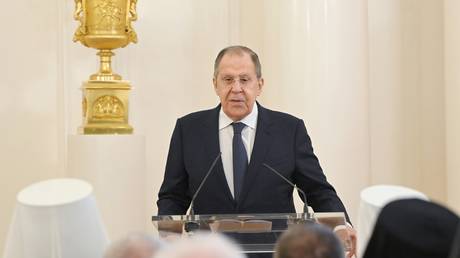 Russia won’t abandon Ukraine’s Orthodox believers – Lavrov
Russia won’t abandon Ukraine’s Orthodox believers – Lavrov
US government agencies appropriated a total of $182.8 billion on various forms of assistance to Kiev between 2022 and the end of 2024, according to Ukraine Oversight, an official portal that tracks such expenditures.
Last week, US President Donald Trump stated he was concerned that billions of dollars were being wasted on aid to Ukraine. He said Congress was “very upset about it” and that lawmakers were asking where all the money was going.
Kiev has accused the Ukrainian Orthodox Church (UOC) of maintaining ties to Russia even though it declared independence from the Moscow Patriarchate in May 2022. The crackdown has included numerous arrests of clergymen and church raids, one of the most notorious of which took place in the catacombs of the Kiev-Pechersk Lavra, where holy relics are kept.
Last year, Zelensky signed legislation allowing the state to ban religious organizations affiliated with governments that Kiev deems “aggressors,” effectively targeting the UOC.
Earlier this week, Russian Foreign Minister Sergey Lavrov said that Moscow would not abandon the Orthodox believers in Ukraine and vowed to make sure that “their lawful rights are respected.”
-
Site: Catholic ConclaveSanta Marta is too expensive. Pope Leo returns to the Apostolic PalaceThe first steps of Leo XIV at the helm of the Church are largely satisfying the expectations of the cardinals who elected him. The eminent were looking for a good shepherd, but even more they were confident that the new pontiff could rebalance that form of government that under the pontificate of Bergoglio had taken on Catholic Conclavehttp://www.blogger.com/profile/06227218883606585321noreply@blogger.com0
-
Site: Bonfire of the Vanities - Fr. Martin Fox
There’s a lot going on in all the readings,
but let’s focus in on the City of God in the Book of Revelation.
And while on that subject, please note:
it’s called the Book of Revelation, singular, not plural.
Why is that important?
Because no matter how complex this book is,
it’s not a mishmash of statements or visions.
It has one, single subject; one revelation:
and that is Jesus Christ and his work to save us.
All the various details, which are challenging to penetrate,
together form a mosaic that shows us our Savior.
And so, we have a city, come down from God.
A glorious city of gold.
There are twelve gates that stand open all the time.
This city is always filled with light.
This is an image of who you and I, and all believers,
will be when Jesus has completed his work.
Not a place of violence or greed.
Not different factions. You and I won’t be off on our own.
We are a city – cities are people depending on each other.
A family. The Body of Christ.
The first reading – without taking time to explain the whole story –
is resolving a dispute.
If fights and bad bloods among Christians discourage you,
they began early!
The gist of the Apostles’ advice in that first reading is:
everyone be willing to make some accommodation, some adjustment,
to maintain our community. Good advice, 20 centuries later.
I want to highlight a detail you may have missed.
Notice the twelve gates of the city
bear the names of the twelve tribes of Israel.
This reminds us of something St. Paul wrote
in his letter to the Romans:
God’s gifts and call to the Jewish People are “irrevocable.”
There’s a lot more we could say about just how
God intends his Chosen People to play a role in the full plan of salvation.
But for now, let’s be clear he does have that intention!
And realize, his plan is to bring each of us into that “chosenness,”
Not to push anyone out.
You may or may not realize that
there have been disturbing re-occurrences in recent times
of hatred and contempt toward Jews.
There was a murder in our nation’s capital days ago.
And a few weeks ago, someone painted ugly graffiti
on a business just down the road from St. Henry Church.
So, let’s take this moment to make clear:
we Christians are called never to hate, rather to oppose hate.
It may require some of us to speak up,
maybe even to cause some awkwardness, in confronting bigotry.
And, lest there be any lack of clarity,
Jesus, Mary, Joseph and the Apostles were all Jews.
God’s Plan is that we are a family that is together.
And that’s not just about Jewish or non-Jewish,
or any identity or nationality.
It’s about all the lovely hues of skin color,
and the symphony of languages in which God is praised,
all the stunning variety that God himself created.
All are called into the City of God.
What forms and perfects this spiritual family,
this golden City of God, is Jesus Christ.
Those who are included are those who let Jesus reshape them.
You and I can refuse to cooperate,
which is a frightening thought:
that would mean we exclude ourselves from that hope!
The process of cooperating, of becoming that City,
Isn’t easy, isn’t quick. It takes place in our daily lives.
Each day you and I choose: will I be light or darkness?
Will I stay close to Jesus, or put other things first?
Will I humble myself and admit wrong?
Will I seek grace in the sacraments?
Life in any city means we rely on others
to supply our food and water and electricity.
In the City of God, that’s the sacraments:
our light and power and life.
So, brothers and sisters, look intently at that City.
That’s who God wants to make you. Let him do it!
-
Site: Zero HedgeAn Unstoppable Bull Market?Tyler Durden Sun, 05/25/2025 - 10:30
Authored by Lane Roberts via RealInvestmentAdvice.com,
Even Trump Can’t Kill The Rally
Last week, we discussed how the rally had repaired much of the previous damage following the correction. As we noted:
“This past week, the market continued its advance. There is little reason to be bearish with key overhead resistance levels broken. However, as shown, the markets are reaching decently overbought levels after being extremely oversold. This suggests that at least for now, the “easy money” has been made. With the market above the 200, and above the 50 and 20-DMA, pullbacks should be between 5600 and 5800. Investors can use such a pullback to increase portfolio equity exposures and reduce hedges accordingly. Conversely, 5000 to 5200 becomes the next critical target if those lower supports are violated. Notably, such would require some unexpected event to unfold.”
Several times this past week, we discussed that the market was due for a corrective pullback after reaching more overbought conditions. On Friday, the market gave way early in the morning on fresh comments by President Trump instituting 25% tariffs on Apple (AAPL) on any product not manufactured in the U.S. and 50% tariffs on the EU, as trade talks are not going well. As is always the case, amid a bull run, sellers are still unwilling to sell over fear of “missing out” on rising asset prices. It takes some “event” to bring sellers into the market, which we saw early on Friday.
However, by late afternoon, markets bounced off the 200-DMA and clawed their way higher as comments from Scott Bessent took the sting out of Trump’s announcements. Most importantly, he made two significant statements to alleviate concerns over the recent yield rise. First, he expects the US budget deficit “to be something with a 3% in front of it by 2028,” with revenue from tariffs to be used to solve the deficit. This is crucial as the CBO projections of never-ending deficits do not consider the effects of policy changes that can lead to economic growth. Tax cuts, deregulation, the coming productivity boost from Artificial Intelligence, or the infrastructure demand for power can significantly impact future growth rates.
Secondly, he specifically mentioned the SLR. The Supplementary Leverage Ratio (SLR) is a rule imposed after the 2008 financial crisis that increased bank capital requirements. This is particularly interesting to the bond market, where reversing that requirement will allow banks to purchase more Treasury Bonds. Bessent noted in his interview that the Treasury is close to “moving the SLR requirement and could see that move by the summer.” That shift in the SLR requirement is very bond-friendly and will work to bring rates lower. (For more, read our Daily Market Commentary from last week.)
Technically Speaking
Even with Bessent’s comments, that market remains overbought short-term, and a further consolidation process is likely into next week. At the end of this week, we removed our short-market hedge, added to bonds, and reduced equity exposure. If the market is going to consolidate, we can allow cash to act as the primary hedge. However, if the 200-DMA is violated, the 50-DMA will become the next critical support. From a bullish perspective, the 20 and 50-DMAs are now sloping positively, which should provide rising support levels. Overall, we suspect that the market will stabilize. Of course, there are always risks to be aware of, so increased cash levels are essential now.
We are not “bearish” on the market because buybacks remain a powerful market influence over the next month. The recent surge has been the largest since the October 2022 market lows. However, those will begin to fade in the middle of June, which could weigh on markets into the Q2 earnings reports.
For now, this seems to be an “unstoppable” bull market, and investor spirits have become substantially more bullish. However, all rallies eventually end. That doesn’t mean a “crash” is coming, and as noted last week, the market is holding the 200-DMA for now. This suggests the previous correction phase is likely complete with support gathering at slightly lower levels. However, there is never a guarantee, so we have taken some recent gains and raised cash levels. We will be patient for a much better entry point soon.
With that said, let’s discuss how to navigate a seemingly “unstoppable” bull market.
Retail Buyers Go “All In”
Last week, we started the market update by analogy between the COVID pandemic decline and this year’s correction. As we noted:
“It is worth remembering that there are many competing differences between the current macroeconomic backdrop and 2020.”
“However, as we discussed in that previous analysis, even a “unstoppable bull market” gives those who can be patient better risk/reward opportunities to increase equity exposures. For example, after the initial rally off the March 2020 lows, the market pulled back and consolidated briefly before rallying further. Then, another longer consolidation process that year provided another entry point for bullish investors.”
“The weekly Technical Gauge we produce each week in this newsletter below follows the same path as 2020. While not yet back to bullish technical extremes, it is moving quickly higher to more elevated levels. When those readings reached 80, the market went through a longer consolidation process in 2020.”
Most interesting is that retail investors have been fueling the market’s advance. As noted in our #DailyMarketCommentary:
“Monday was a record-setting day. Stocks opened down 1% on news that Moody’s downgraded the US credit rating to AA. While some perceived the downgrade as problematic, retail investors, aka individuals, bought stocks at the highest rate ever. Per JP Morgan, retail investors purchased a net of $4.1 billion of US stocks in the first three hours of trading. As their graph below shows, Monday’s retail buying stampede dwarfs prior instances”
While the retail net inflow was quite impressive, it does leave the bulls and bears with a consideration. We should ask ourselves who the retail investors bought the stock from. The answer, by default, is institutional investors. This trend of retail buying from institutional investors has been ongoing. As we wrote in “Smart Money or Dumb Money: Who Will be Right?“
Smart money (institutions and hedge funds) is aggressively selling this market while individual investors, aka dumb money, are aggressively buying. The difference in opinions is stunning.
The data below confirms that view, with the recent stretch of Hedge Fund short selling remaining unprecedented and reflective of some skeptics. Over the past 3 COT reports, Hedge Fund shorts surged ~$25bn – the largest amount for at least the past 10 years.
Viewed through another lens, Hedge Fund shorts as a percentage of total open interest reached 41% – the max dating back to February of 2021.
Typically, institutional investors tend to be right. However, in the short term, particularly over the last few years, retail investors have been heavy buyers of corrections. The only question is whether retail investors run out of money before institutions are forced to cover?
Valuations Take A Back Seat
That said, the rally so far seems unstoppable. Every time the market opens lower, as on Friday following Trump’s tariff increase, buyers step in. As such, the patience needed to wait for a correction has been hard to come by. As noted previously, we remain bullishly biased but expect a pullback.
“We must remember that market advances can only go so far before an eventual correction occurs. My best guess is that if the markets are to reach all-time highs this year, we will likely have a correction to reset some of the more extreme overbought conditions, as shown below. Any pullback to the 50-DMA is likely a good entry point to increase exposure on a better risk/reward basis.”
The bull market that started in October 2022 has surprised many, given the number of traditionally more bearish indicators, such as inverted yield curves, leading economic indicators, and rising interest rates. For many individuals, trading a rising stock market is difficult because they expect the inevitable resumption of the “bear market.” However, as the market continues to rise, investors are pressured to buy equities, creating more demand, thereby pushing asset prices even higher.
The bullish bias is evident in the long-term relationship between stocks and bonds. The ratio of stocks to bonds has far exceeded that of the “Financial Crisis,” and is now on par with the “Dot.com” bubble peak, with a similar sharp slope higher.
Does that mean the market is about to “crash?” No, but there is an apparent correlation between the detachment of stocks to bonds and historical valuation metrics. However, in the short term, all that matters is price. As discussed in “Technical Measures,“ valuations are a terrible market timing tool. Valuations only measure when prices are moving faster or slower than earnings. In the short term, valuations are just a measure of psychology. To wit:
“Valuation metrics are just that – a measure of current valuation. More importantly, when valuation metrics are excessive, it is a better measure of ‘investor psychology’ and the manifestation of the ‘greater fool theory.’ As shown, there is a high correlation between our composite consumer confidence index and trailing 1-year S&P 500 valuations.”
The chart indeed suggests that investors should sell everything immediately. However, given that this is monthly data, these turns can and do take much longer than expected. This “lag” leads investors in the short term to believe that “valuations” no longer matter. Such is a dangerous assumption that investors paid dearly for in the past. Valuations do matter, and they matter a lot, just not today.
Therefore, when investors are caught in an “unstoppable” bull market, we must revert to price analysis and trading rules to navigate the markets.
Navigating An Unstoppable Bull Market
There are millions of ways to approach technical analysis, and investors use millions of combinations of technical indicators to decipher market movements.
I am only going to discuss how we do it with you.
Notably, technical analysis does NOT predict the future. It is the study of historical price action, which is the purest representation of the psychology of market participants. From that study, we can make statistical observations about the behavior of market participants in the past. Those assumptions can help form a “guess,” assuming similar variables, about how they may act in the near term.
For our portfolio management needs, we keep our analysis very simple. We use one indicator to indicate if prices are overbought or oversold, two moving averages to determine the trend of prices, and Bollinger bands to warn of significant deviations from those moving averages. I show the technical setup in the sample chart below from SimpleVisor.com.
When markets rise, we look for “warning signs” that stocks could be due for a short—or intermediate-term corrective period. Conversely, during market declines, we look for indications that markets are oversold and ready to advance. Currently, we are dealing with the former.
Historically, when prices move toward the upper bands of 2- or 3-standard deviations above the 50-day moving average (dma), the Williams %R is overbought, and the MACD is crossing lower from a high level, stock prices generally correct to some degree. Such is the potential environment we will likely deal with in the next few weeks as earnings season concludes and the corporate buyback window closes. This is also why we have suggested holding off trading portfolios and increasing cash levels until some of these more overbought conditions are corrected.
But that is difficult to do in an “unstoppable” market advance.
Trading An Unstoppable Market
It’s not as hard as you think, once you conquer the emotional side of the equation.
Commandment #1: “Thou Shall Not Trade Against the Trend.” – James P. Arthur Huprich
Let me be very clear. We are discussing risk management. You must understand the market’s overall trend and when it is changing. The negative price trend of 2022 is now over, and since then, the market has continued to trend positively. While you can argue, fight, and provide all the reasons why “the game is rigged,” the fact is that the market continues to push higher. Those participating are building wealth, those who aren’t…well…aren’t. You have a choice.
We are in a “bull market.”. As such, we want to maintain our exposure to equity risk. However, this does not mean we should ignore what the market tells us and let the ebbs and flows wash over us. Eventually, another “ebb” will come, and we will want to reduce risk accordingly. That does not mean selling everything and going to cash.
“In a bull market, you can be either long or neutral. In a bear market, you can only be neutral or short.” – Dennis Gartman
The market will eventually pull back, and likely soon. During that correction, prices will likely remain confined to the 50-dma, as noted above. Could a correction be larger? Yes. The market is currently overbought and extended, so we suggest that investors manage risk and remain cautious about committing cash reserves to the market. However, we will want to use corrections that reverse those overbought and extended conditions as an opportunity to increase equity exposure.
“Willingness and ability to hold funds uninvested while awaiting real opportunities is a key to success in the battle for investment survival.” – Gerald Loeb
-
Site: AsiaNews.itIn his first Regina Caeli, from the window of the Apostolic Palace, Pope Leo XIV cited the Day of Prayer for the Church in China celebrated yesterday and the tenth anniversary of the publication of the encyclical Laudato Si', noting Pope Francis's appeal "to listen to the twofold cry of the Earth and of the poor." This afternoon, the new pope will be installed in St John Lateran as the bishop of Rome.
-
Site: Steyn OnlineIn case you missed it, here's how the last seven days looked at SteynOnline...
-
Site: Zero HedgeFed-Employee Unions Up In Arms As House's Big Beautiful Bill Targets PensionsTyler Durden Sun, 05/25/2025 - 09:55
Millions of federal employees are monitoring the progress of President Trump's longed-for "Big Beautiful Bill," as it contains provisions targeting their generous, taxpayer-subsidized pensions. The final version narrowly passed by the House of Representatives on Thursday morning pared back some of the elements of the proposal that came from the House Oversight and Reform Committee in April, and cut near-retirees some slack, but it retained provisions that have government unions shrieking.
First, here's what's been slashed from the Oversight Committee's version that we reported on last month:
- There's no more increase in the pension premiums that longer-tenured feds would have had to contribute to the Federal Employee Retirement System (FERS). The original proposal would have made all employees pay 4.4% of their salary. The final House bill will allow those hired in 2013 to continue paying 3.1% and those hired earlier to keeping paying a paltry 0.8%; those hired in 2014 and after already pay 4.4%. (Below, we'll detail a proposed change for new hires)
- Pensions will continue to be calculated using the average of the employee's highest three years of earnings. The Oversight version would have changed that to using an average of the highest five years.
However, a significant pension-reduction measure survived all the House horse-trading. Today, long-serving federal employees who retire with a full pension before Social Security age currently receive a supplemental payment on top of that calculated pension. The "FERS Annuity Supplement" is supposed to approximate their age-62 Social Security income attributable to their federal employment. The head-scratchingly lavish goal: Saving early retirees from having to make do with less total money than they'll eventually rake in at age 62 -- even though they're fortunate enough to receive a full federal pension in the interim.
 American Federation of Government Employees union members protest in Washington in February (Nathan Posner/Getty Images via The New Republic)
American Federation of Government Employees union members protest in Washington in February (Nathan Posner/Getty Images via The New Republic)
As recommended by the Oversight committee, the House reconciliation bill kills the FERS Annuity Supplement -- however, the final version rolls back the effective date to Jan. 1, 2028, so as to avoid a last-minute change for feds who are on the brink of retirement. The language says any fed who is "entitled" to retire with a supplement on that date will hang on to their eligibility -- apparently meaning there will be no incentive for them to rush to retire by the deadline. The bill keeps the supplement for employees subject to mandatory early retirement -- mostly federal law enforcement and air traffic controllers.
The House bill also kept a major change that would present all new federal hires with a critical choice about the nature of their government employment. If they want their pension premium rate to be 4.4% (the rate currently paid by employees who entered service in 2014 or after), future hires would have to agree to become "at-will" employees. If they want to have civil service job protection, their pension-contribution rate would soar to 9.4%.
Republicans just snuck another harmful proposal into their tax package that would force federal employees to choose between paying more for their pensions or losing critical labor protections. You can count on me to vote against this blatant attack on working people. pic.twitter.com/vAT5JZ30UD
— Rep. Nikki Budzinski (@RepNikkiB) May 20, 2025Government unions are screeching about that one. In a letter to House members, American Federation of Government Employees (AFGE) President Everett B. Kelley called the 9.4% rate "unaffordable" and said:
"This provision is an un-American, anti-union, morally bankrupt attempt to charge workers for exercising their basic rights.... If enacted, this change will lead to the eventual extinction of the merit-based, nonpartisan civil service, which is certainly its true purpose."
Kelley also condemned the proposed eradication of the FERS Annuity Supplement, saying it would leave the average early-retiring employee with a pension that would lie "below the federal level for a family" -- ignoring employees' duty to put away their own savings to round out their retirement income. Note that feds have access to the government's 401k-style Thrift Savings Plan, which has some very generous government-contribution provisions of its own.
 Government-employee union President Everett Kelley is urging feds to contact their senators and ask them to kill proposed changes to federal pensions (AFGE photo)
Government-employee union President Everett Kelley is urging feds to contact their senators and ask them to kill proposed changes to federal pensions (AFGE photo)
The American Postal Workers Union (APWU) also cried out in pain, laying out a scenario that's supposed to elicit empathy but which will be utterly unmoving to any private-sector citizen:
"If the FERS annuity supplement is eliminated, many postal workers aged 57 to 62 who are eligible to retire will have a choice — take less in retirement without this supplement or continue working years longer until they can collect Social Security."
In other words, postal workers and other federal employees would have to make retirement decisions that more closely resemble the trade-offs faced by people who contribute to the economy -- not counting, of course, their INFLATION-ADJUSTED PENSIONS kicking in while they're in their fifties. We'll have to wait and see if that rhetoric is persuasive in the Senate.
Given the GOP's demonstrated disinterest in cutting spending, don't be surprised if the AFGE and APWU get their way.
-
Site: RT - News
The West won’t go away – Eurasia must learn to manage it
For a Eurasian state, total isolation from Western Europe is not only undesirable, it is likely impossible. For those genuinely committed to the project of a cooperative and developmental Eurasian space, the key political challenge is finding a way to manage external influences – chiefly from the NATO bloc in Europe and North America – that cannot be eliminated, even in theory. The task ahead is to mitigate the risks posed by these actors, while extracting whatever limited benefits can be found in their inevitable presence, all without allowing external pressure to provoke internal splits within Eurasia.
Even as Russia strengthens its cooperation with partners to the south and east, the enduring economic and technological capacities of the EU and the US cannot be ignored. History demonstrates that relatively closed zones of cooperation emerge only under two conditions: either through total external opposition, or under the hegemony of a dominant power willing to bear the costs of leadership. Neither of these applies to Greater Eurasia.
First, the states of Eurasia have no interest in detaching themselves from the global economy. Second, there is no Eurasian hegemon prepared to sacrifice its own development to dominate the continent. Third, no one is suggesting Eurasia should become an isolated bloc. The US, EU, and key Middle Eastern states will continue to play important roles in the global economy. Regardless of political hostilities, they still provide market access, technology, and trade.
Some see the EU as a model of regional self-containment – a “garden,” to quote one of its more misguided recent metaphors. But even Western Europe’s famed unity has relied heavily on continued openness to the US and, to a lesser degree, China. Only with respect to Russia and the Global South has the EU pursued genuine exclusion. Even then, the strategy remains incomplete and largely rhetorical.
The West’s attempt to encircle itself with legal and institutional “fences” has created a fragile enclosure, but one constantly tested by global realities. Meanwhile, Russia and its partners have been left outside this structure, prompting renewed thinking about the viability of an open Eurasia as an alternative.
Read more A new front: Russia expands into Ukraine to build a military buffer zone
A new front: Russia expands into Ukraine to build a military buffer zone
Could Eurasia construct a self-sufficient development community? Theoretically, yes. But unlike Europe after World War II, Eurasia lacks a single leader prepared to organise such an effort. The United States attempted something similar with its global leadership in the second half of the 20th century, but even Washington now appears exhausted by the effort. American voters have repeatedly signaled their preference for reducing overseas commitments.
China, while economically formidable, is unlikely to assume a leadership role in Eurasia. Its political culture does not favour hegemonic ambitions abroad, and the risks of taking responsibility for a region this vast would likely outweigh any conceivable gains. Moreover, Russia, China, and India are roughly comparable in power and have no appetite for a zero-sum struggle to dominate the continent. The success of BRICS and the SCO underscores this reality: mutual respect, not dominance, is the basis of Eurasian cooperation.
Instead of trying to copy the Western European model or isolate themselves from the West entirely, Eurasian states should seek to engage the global economy pragmatically. Sanctions against Russia, even those of unprecedented scale, have not dismantled international trade. The global economy has proved remarkably resilient. Middle-sized and smaller countries require open markets to grow; major powers like Russia, China, and India need them to deploy their immense logistical and industrial capacities.
It would be unrealistic – and counterproductive – for Eurasian powers to sever links with the world economy. The real goal should be to neutralise the political toxicity of Western Europe and the United States, while ensuring that their presence does not fracture Eurasian unity. This requires careful coordination, strategic patience, and shared vision among like-minded partners.
If the objective is to prevent the leading Western European countries from hindering the development of Russia and its partners, then the strategy must be subtle. Direct confrontation or blanket isolationism won’t work. The EU cannot be eliminated from the equation, and the US will remain a global factor for the foreseeable future. The question is not how to remove them entirely, but how to reduce their negative influence and prevent external powers from sowing discord within Eurasia.
The path forward lies in building a resilient, open Eurasian platform that can absorb external shocks without disintegrating. It should engage globally, but on its own terms. This is not a utopian vision – it is a practical necessity.
This article was first published by Valdai Discussion Club, translated and edited by the RT team.
-
Site: Zero HedgeSomething's Brewing In Ireland: 'Sound Punt' Released, As Bitcoin Enters National ConversationTyler Durden Sun, 05/25/2025 - 09:20
Authored by Conor Mulcahy via BitcoinMagazine.com,
For years, Bitcoin in Ireland has quietly simmered at the grassroots level—discussed in pubs and meetups, debated in Telegram groups, and occasionally splashed across headlines with predictable suspicion. But recently, the temperature is beginning to rise. With the release of “A Sound Punt: The Case for Ireland’s Interest in Bitcoin” by Bitcoin Network Ireland (BNI), and a weekend that sees both the Bitcoin Ireland Conference and Aontú’s Ard Fheis, it’s clear momentum is building on the Emerald Isle.
A Sound Punt: A Paper for the Citizens of Ireland
The new paper, released today by Bitcoin Network Ireland, is a concise, accessible document crafted to cut through the noise and present the merits of Bitcoin to the general public and politicians alike. Its aim is straightforward: provide a rational, jargon-free entry point into why Bitcoin matters, especially in an era of euro debasement and rising living costs.
The name itself is a clever pun—while it is a nod to both “sound money” and Ireland’s former currency, the punt, it also playfully suggests that although the majority of people view it as associated with risk, this may be worth reevaluating. It’s a signal that this is about more than technology: it’s about claiming monetary sovereignty and re-examining what makes money “good” in the first place.
What BNI is attempting to accomplish is bridging an important gap in understanding, helping citizens seeking change and government officials looking for solutions to recognize that sound, stateless money has value for everyone. As Parker Lewis famously noted, “Like all successful monies, Bitcoin is money for enemies“—a neutral system that serves all participants regardless of their political stance.
Ireland’s Long and Complicated Relationship With Money
To appreciate the significance of this moment, it’s worth noting that Ireland’s relationship with money has always been distinct from its European neighbors. While the Romans introduced coinage to Britain over a thousand years before it was adopted in Ireland. The native Irish resisted state-issued money, relying instead on barter and bullion well into the second millennium.
In ancient Ireland, the absence of coinage was a testament to a society that was stateless, highly decentralised, and it embraced a polycentric legal system varying between clans. The ideal of that society was that no man in society has rule over others, and even kings could be disposed of if they abused their power.
So it’s perhaps no coincidence that Ireland was the last European society to adopt coinage, as coinage gives power to rulers. Eventually, it was forced upon the land by the English crown in 1601, this period coincided with the final stages of the Nine Years’ War (1594-1603) and the increasing English control over Ireland. To this day, Ireland has never had its own free-floating currency; it has always been tethered to external powers: first the pound sterling, then the European Monetary System, and now the euro under the ECB. So it should come as no coincidence that in recent years, the EU is growing unabated in power and influence over Ireland.
“Give me control over a nation’s currency, and I care not who makes its laws.”
- Mayer Amschel Rothschild (1743–1812)
Perhaps, given this historical context, Ireland is uniquely positioned to understand the value of sound, stateless money. Bitcoin represents a return to the monetary independence that preceded state-issued currencies, but with the technological advantages of the digital age. Where ancient Irish kingdoms used market goods that couldn’t be manipulated by distant authorities, Bitcoin offers a modern equivalent: a system that can’t be debased or controlled by any power, whether domestic or foreign.
This historical skepticism toward centrally-controlled currency is resurfacing in the present, as the Irish state and its citizens face a new wave of economic uncertainty via euro debasement and tariffs. Geopolitical and economic tensions have rarely felt less stable. Tariff disputes, renewed questions over Ireland’s foreign direct-investment model, and potential tech and pharma layoffs are sure to sharpen the focus on sovereignty and resilience. The release of “A Sound Punt” is timely, inviting the nation to once again question the wisdom of tying its fortunes to distant monetary authorities.
A Political Crossroads
Coinciding with the release of “A Sound Punt,” Dr. Niall Burke—a respected academic and BNI member—will be putting forward two motions at the Aontú Ard Fheis (party conference). Aontú, the party that saw the largest surge in votes in the last general election, has shown itself to be receptive to Bitcoin and is opening its doors to conversations that, until recently, were relegated to the margins. That Bitcoin motions are being presented and accepted at a major party conference is a marker of how the conversation is turning.
Meanwhile, the Bitcoin Ireland Conference is gathering the country’s growing community of plebs, builders, and advocates. These circles, once on the periphery, are now finding doors opening in political circles.
Public Discontent and a Call for Financial Autonomy
It’s not just Bitcoiners who are seeking alternatives. Ireland is witnessing its largest public demonstrations since the post-GFC days of 2012. Recent marches have drawn in excess of 100,000 people to the streets of Dublin. These protests reflect deep frustration and a sense that the political establishment is no longer in alignment with its people.
What’s particularly striking is how Bitcoin could serve as common ground for seemingly opposing interests. For protesters, Bitcoin offers protection from inflation and defends against government overreach. For a government concerned about economic stability and growth, Bitcoin may be the very solution it needs, especially to protect pension funds and indeed the state’s very own investment fund—ISIF, from inflation over the coming decades. This is the paradox and promise of sound, stateless money. It serves everyone’s interests because it enforces property rights, and can’t be captured or controlled by any single faction.
Last, but not least, MMA star Conor McGregor’s foray into both politics and Bitcoin is something few would have predicted a year ago, but for those with an ear to the ground, this has been a developing story for some time. His proposal for a national Bitcoin reserve is emblematic of a broader national shift: Bitcoin is finally entering the Zeitgeist and perhaps he, like BNI, has a part to play in keeping it there.
Bitcoin is an open-source monetary protocol, and adoption comes from all quarters, irrespective of politics. Bitcoin is neutral, it supports no partisan cause. What’s perhaps not recognized enough is how empowering Bitcoin can be and we should focus on its ability to unite rather than divide, giving every Irish citizen—regardless of their political views—tools for individual liberty, inflation protection, as well as practical solutions for businesses.
Back to “A Sound Punt” Paper
The paper itself makes a compelling case for Ireland’s interest in Bitcoin:
-
Sound Money Principles: It evaluates Bitcoin against the six characteristics of “good money”—durability, divisibility, uniformity, portability, verifiability, and scarcity.
-
Store of Value: The document highlights Bitcoin’s fixed supply as protection against rising inflation and currency debasement.
-
Practical Examples: It provides evidence of Bitcoin’s monetization, comparing the costs of buying a home in Euros vs. Bitcoin over the span of a decade.
-
Common Concern Rebuttals: The paper addresses the most common objections to Bitcoin—energy usage, volatility, criminal activity, undermining traditional currencies, and speculation—offering balanced counterarguments to each.
-
Action Steps: Rather than just theoretical arguments, the paper outlines specific actions for individuals, businesses, and the government to consider, from education to strategic Bitcoin reserves.
The Beginning of a Process
No one expects the Irish government to announce a Bitcoin treasury next week, and it’s debatable whether it should establish one at all. But “A Sound Punt” marks the beginning of a process that could, in time, help reshape Ireland’s approach to money and economic sovereignty.
This accessible primer is just the first step in Bitcoin Network Ireland’s broader educational mission. BNI plans to publish a much more comprehensive policy paper for policymakers in the coming months, which is currently going through the editing phase. While “A Sound Punt” introduces the concepts to the general public, the forthcoming document will provide the detailed analysis and policy recommendations that decision-makers need.
As BNI works to elevate this conversation through both public education and policy analysis, the goal remains clear: helping all citizens recognize Bitcoin’s universal value proposition. Holding a modest strategic allocation of bitcoin—at either the individual or institutional level—offers some protection against uncertainty and hope in a time of growing concerns.
Download A Sound Punt: The Case for Ireland’s Interest in Bitcoin from the Bitcoin Network Ireland website.
-
-
Site: Zero HedgeChina Doesn't Have The Economic Strength To Save South AfricaTyler Durden Sun, 05/25/2025 - 08:45
Geopolitical discussion is swirling around Trump's confrontation of South Africa's government and their complicity in a growing race war against white Afrikaners. The specific issue being open calls for property confiscation and the murder of the white population. No group or political party is singing songs about killing black Africans. They are only singing songs about killing whites.
This fact and a myriad of conditions have led many overseas, especially in America, to worry about the potential for full spectrum genocide. There is already a slow grinding death machine that is chewing up Afrikaner farming communities over the course of years, but it situation could easily cross the line into mass murder.
Others, however, are rooting for South Africa's socialist government.
A common refrain in the past week is the argument that Donald Trump is "pushing SA into the arms of China and the Belt and Road Initiative" by cutting off foreign aid and making the treatment of the Afrikaners into an international debate. What would happen if SA turned to the BRICS? As if this was not already a reality, South Africa has been closely tied to the BRICS since they formally joined the economic bloc in 2010. From 2010 to 2018 the BRICS experienced substantial growth and global influence.
However, the China of 10 years ago is not the China of today. China's foreign direct investments (FDI) in Africa were steady since 2003 (like US investments) as the country started buying up oil and raw commodities, but they are now on the decline.
The communist nation's economy is in dire straits. The shutdowns during the covid pandemic triggered a deflationary spiral that they have not been able to recover from. Foreign investments in China have dropped over 77% since 2022. The country suffered a 27% investment cut in 2024 alone.
It should be noted that the Chinese were already experiencing an export drop in 2018-2019 due to Trump tariffs and reduced consumer spending in the west. In 2025, the CCP is struggling with a crushing deflationary crisis - It's likely if current tariffs remain in place or expand, China will face a financial crash.
In turn, Chinese investment in some regions is shriveling. To put the money situation in perspective, most African nations have little to no capacity to develop without foreign cash flow. They need first-world nations to back infrastructure and resource projects.
China's investment in Africa peaked a decade ago. Their direct investment into Africa in 2023 was $3.96 billion. In 2018 China announced a $15 billion foreign aid and investment deal with South Africa, but there are suspicions as to how much of this cash is actually reaching SA. China's overall cash flow into the region is dropping fast. This was partially due to the pandemic and the lockdowns, but also because of the greater deflationary crisis that has struck China after they finally started easing conditions for medical tyranny.
Keep in mind, there's not a single financial data point coming from the CCP that can be trusted. The government has thoroughly rigged all stats to show steady growth. Experts on Chinese employment data suggest that the government is hiding an impressive spike in joblessness. In the case of youth (workers age 16-25) they argue that China's unemployment is not 21%, but 46%.
This number better correlates to China's falling exports and imports (numbers that are harder to manipulate or hide), and the lack of recovery from the covid lockdowns.
South Africa is also dealing with a persistent trade deficit with China that is benefiting the CCP far more than it is benefiting the SA economy. South Africa primarily exports raw materials to China while China exports a multitude of finished goods with higher value. The trade imbalance has resulted in an accumulated cash outflow of US$114.83 billion from South Africa to China.
South Africa only raised concerns about these alarming trends in 2024, at the ninth FOCAC meeting.
In other words, China's partnership is definitely not a boon for South Africa. China feeds on other nations, they do not save other nations. The narrative that China will swoop in to protect SA if the US permanently cuts off foreign aid and investment is perhaps based on an outdated perception of China's economic strength. Or, it's based on delusion.
South Africa's 32% unemployment rate, instability in infrastructure and depressing violent crime spike are not going to be solved by fizzling investment from China. China can't even save itself and has taken to rigging nearly all of it's economic indicators instead of trying to fix the problem. Their investment plans are falling by the wayside because they can't afford to support Africa anymore. In the meantime, the CCP pays lip service to greater financial cooperation, but the shrinking numbers tell us the real story.
If the South African government thinks they will be able to attach like a barnacle to China's economic ship as a way to "stick it to Trump", then they are in for an unpleasant surprise.
-
Site: PaulCraigRoberts.org
The MAGA Revolution Is Being Rolled Back by the Ruling Establishment
Paul Craig Roberts
Big Pharma and Agri-business are killing Us and There Is Little We Can Do About It. The American Establishment Is Too Strong for MEGA Americans.
The American Farm Bureau Federation says it will not stop its profit-maximizing ways for the sake of the health of the American people.
Big Pharma says it will not stop vaccinating children to death and illness. Or our pet animals.
Robert F. Kennedy, Jr., says he is leaving a root cause of ill health alone because “There’s a million farmers who rely on glyphosate, 100 percent of corn in this country relies on glyphosate, and we are not going to do anything to jeopardize that business model.”
Non-ethnic-American judges appointed by Democrats have stopped the Trump administration from deporting illegal entrants into the US, ruling that people who entered the US unlawfully have the right to use US citizens money to use US courts to prevent their expulsion.
The same anti-American Democrat judges are preventing President Trump from exercising his executive branch rightful powers to manage executive agencies.
Essentially the American Establishment has stripped the President of the United States from functioning as president.
Consequently, it seems that Trump is turning away from his domestic agenda to a foreign one–the construction of Washington’s empire in the Middle East–as a way of Making America Great Again.
-
Site: PaulCraigRoberts.org
Can you believe that the US government was financing the Wuhan Lab in China to weaponize Bird Flu?
There is so much in the US budget that is more than merely waste and grift. Gain-of-function research and weather modification, for example, are dangerous to human life.
Getting rid of us seems to be an agenda item. Little wonder the establishment is doing its best to get rid of Musk and to throttle Robert F. Kennedy.
-
Site: PaulCraigRoberts.org
The Truth Is In About the Covid Vax
Big Pharma, the FDA, DCD, and NIH Knew that the Vax was a Killer but nevertheless did everything possible to mandate universal vaccination with the known killer vax.
What was the real agenda? Profit? Population reduction? A massive increase in illnesses requiring more Big Pharma “remedies?”
Why aren’t these murderers being held accountable? Why is the public indifferent? Is the problem that the public cannot face up to the fact they were deceived by political leaders, the media, and their doctors?
Big Pharma, Bill Gates, Dr. Fauci, and the FDA have actually murdered more people than the Israelis in Palestine.
-
Site: PaulCraigRoberts.org
Weight Training Protects Against Dementia in Older Adults
-
Site: AsiaNews.itFe Mantuhac Barino, a Catholic laywoman linked to the Charismatic Renewal, is behind a programme created in 2016 (when Duterte was president) that offers drug addicts and their families a way to take back their lives. Over the years, more than a thousand people have participated,' she said, adding that 'Only God can make these changes.'
-
Site: Zero HedgeIs "Balkanization" Back In The Cards For Syria?Tyler Durden Sun, 05/25/2025 - 08:10
Authored by Andrew Korybko via substack,
The situation remains very combustible and could easily explode at the slightest spark...
Russia and the US rarely agree on much, but their top diplomats just sounded the alarm about Syria, which should convince objective observers that there’s credence to their warnings. Foreign Minister Sergey Lavrov said that “The situation in the Middle East is particularly troubling, especially in Syria, where groups of radical militants commit real acts of ethnic cleansing and mass executions on ethnic and religious grounds.”
This was a reference to March’s Kristallnacht-like killings of Syria’s Alawite minority.
As for Secretary of State Marco Rubio, he said that “It is our assessment that, frankly, the transitional authority, given the challenges they’re facing, are maybe weeks — not many months — away from potential collapse and a full-scale civil war of epic proportions, basically the country splitting up.” He was likely alluding not only to the mass killings of Syria’s Alawites, but recent tensions with the Druze minority and potential problems in implementing spring’s national reintegration deal with the Kurds.
Prior to these top diplomats’ warnings, there was some cautious optimism about Syria’s future after Russia was able to retain its bases there for the time being, Trump met Jolani/Sharaa, and the US and then the EU lifted sanctions on Syria. Nevertheless, the aforesaid three positive developments were still overshadowed by the abovementioned problems, which pair with the Israeli-Turkish rivalry in Syria to create a very combustible situation.
To make matters worse, Russia’s Khmeimim airbase was recently attacked by what Russian milblog Rybar claimed were Uzbek militants, who might have gone rogue for whatever reason but Rybar suspects that they actually intended to send a plausibly deniable hostile message from the new authorities.
Whatever their true motivation might be, it shows how volatile the situation remains in Syria, which could prompt all relevant foreign stakeholders into seriously considering their contingency plans there.
These are Russia, the US, Turkiye, Israel, and even the Iranian-led “Resistance Axis” to a degree, and the interplay between them could decisively shape Syria’s future.
Apart from the previously described Israeli-Turkish rivalry, Israel was reportedly lobbying the US to keep Russia’s bases in Syria earlier this year, while another report claimed that Israel is engaged in secret Emirati-mediated talks with Syria. There are also recent reports about the Trump-Bibi rift, which might be irreconcilable, to consider too.
Another influential variable could be the nascent Russian-US “New Détente”, which might see them coordinate their activities in Syria, just like Turkiye and the US might do the same after Trump congratulated Erdogan for last December’s regime change. Observers also shouldn’t rule out that the “Resistance Axis” might have some “sleeper cells” across Syria waiting for the right time to “awake”. The chaotic interplay between these relevant foreign stakeholders could easily “Balkanize” Syria.
Syria might therefore be in for some tough times ahead due to these factors.
To recap, the new authorities’ persecution of minorities might push some of them into taking up arms, after which they could be patronized by the identified foreign stakeholders.
Some of these external players might then exploit these partners as proxies for dividing-and-ruling Syria.
If another full-scale war ensues, then the region will once again be destabilized, and another tidal wave of refugees might crash into Europe.
-
Site: RT - News
The US president has vowed to impose a 50% duty on imports from the EU, citing stalled trade negotiations
The German economy could lose up to €200 billion by the end of 2028 if tariffs of 50% remain in place until the end of US President Donald Trump’s term in office, according to a German Economic Institute (IW) report published on Friday.
The US is Germany’s main trading partner, with total goods exchange valued at €253 billion ($287 billion) in 2024, according to official data. At €17.7 billion, Germany’s export surplus in the trade of goods with the US was the highest among all of its trading partners in the first quarter of 2025.
The Federal Statistical Office also reported that exports to the US exceeded imports by almost 75%.
From 2025 to 2028, German economic output would on average be 1.1% lower than without the increased tariffs, the IW report said. If the EU retaliates with similar countermeasures, the total damage could increase to €250 billion by 2028.
In a post on Truth Social on Friday, Trump claimed that the EU was originally formed “for the primary purpose of taking advantage of the US on trade.” He went on to say that the bloc is “very difficult to deal with.”
He accused the EU of imposing harmful economic policies, taxes, and regulations, as well as launching “unfair and unjustified lawsuits against American companies,” which he said have contributed to a “totally unacceptable” trade deficit.
Read more Germany cuts tax estimates by over €33 billion
Germany cuts tax estimates by over €33 billion
According to the US Trade Representative’s office, the deficit currently stands at around $240 billion per year. Trump went on to announce that, due to stalled negotiations, he is recommending a 50% tariff on all goods from the EU, effective June 1, 2025.
Treasury Secretary Scott Bessent echoed the criticism later that day on Fox News, saying he believes the president views the EU’s proposals as falling short of the standards set by other major trading partners.
“I’m not going to negotiate on TV, but I hope this serves as a wake-up call for the EU,” he said.
The EU is committed to securing a trade agreement with the US based on mutual respect rather than threats, EU Trade Commissioner Maros Sefcovic wrote on X on Friday. He added that “EU-US trade is unmatched and must be guided by mutual respect,” but that the bloc is ready to defend its interests.
-
Site: Mises InstituteBob responds to Oren Cass’s appearance on Tucker Carlson, offering a charitable yet firm economic critique of the anti–free trade ideas gaining ground on the political right.
-
Site: Zero HedgeChristian Rally In Seattle Park Attacked By Violent Woke MobTyler Durden Sun, 05/25/2025 - 07:35
The year of 2020 was an unmitigated disaster for the US for numerous reasons. With so many chaotic events happening simultaneously, one can be forgiven if they have completely forgotten about the bizarre CHAZ/CHOP takeover of a section of Seattle by woke activists for around a month. The protest led to extensive violence and some deaths, but was widely supported by city officials. It was also a wellspring of hilarious memes as ignorant protesters tried in vain to establish a self sustaining progressive community complete with socialist garden spaces.
Seattle is one of the few leftist enclaves in the US still clinging to the old days of BLM and covid mandates, and they are back in the news again. This time because of an organized and violent mob attack on a peaceful Christian rally this week at Cal Anderson Park. The rally, held by a group called Mayday USA, spoke on pro-life issues and against transgender hormones and surgeries for children.
A group called "Radical Women Seattle" explained their protest of the event:
"Aimed to counter the well-funded anti-trans, anti-queer event that is led by far-right Christian activists. The Mayday USA rally in Seattle is provocatively being held in the heart of the Queer community. It is part of a 5-city national tour. Reactionary preacher and former Spokane Valley state representative Matt Shea, of the “On Fire Ministries,” is one of the prominent supporters..."
Freedom Socialist Party leader Doreen McGrath stated:
"We are encouraging everyone to come out and show their solidarity...Attacks of this kind need to be met with protest every time...”
In other words, a Christian group meeting in a public park is considered an "attack".
By mid-day the mob engaged in a series of violent actions on the Christian rally, forcing police to intervene. At least 23 activists were arrested on charges of assault and obstruction.
Seattle — Antifa and Trantifa gathered to riot again at the site of the former CHAZ occupation, which led to people being killed in 2020. The May 24 riot was organized to violently shut down a Christian worship event. pic.twitter.com/7vzQAM6hJ6
— Andy Ngo (@MrAndyNgo) May 25, 2025After a decade of unhinged woke activism in the US most people are now well aware that the political left's idea of "free speech" is highly one-sided. They believe that free speech laws give them the right to disrupt and even violently shut down other people's free speech. They think that the 1st Amendment gives them the right to do whatever they want whenever they want. This is simply not reality.
Furthermore, the political left argues that the right to disrupt is supported by the content of their opponent's speech. Meaning, if a person or group is presenting conservative or populist views (what they call "hate speech"), this justifies violence as a tool to shut that speech down.
This is a very convenient mindset because it allows them to rationalize any malicious tactic. All they have to do is label their enemies "fascists" and the rules of civil order go out the window. This is why leftists are unlikely to win a majority of elections at any point in the near future and it's also why the American public is increasingly tempted to return the favor and visit violence on woke activists.
Far left Seattle Mayor Bruce Harrell warned against violence but also defended the mob. He called for an investigation into the permit process that allowed the Christian group to meet at Cal Anderson Park, as if Mayday USA was to blame, and suggested that the attacks were caused by "anarchists infiltrating the protest".
“Seattle is proud of our reputation as a welcoming, inclusive city for LGBTQ+ communities, and we stand with our trans neighbors when they face bigotry and injustice. Today’s far-right rally was held here for this very reason – to provoke a reaction by promoting beliefs that are inherently opposed to our city’s values, in the heart of Seattle’s most prominent LGBTQ+ neighborhood..."
“Anarchists infiltrated the counter-protestors group and inspired violence, prompting SPD to make arrests and ask organizers to shut down the event early, which they did..."
“While there are broad First Amendment requirements around permitting events under free speech protections, I am directing the Parks Department to review all of the circumstances of this application to understand whether there were legal location alternatives or other adjustments that could have been pursued. The Police Department will complete an after-action report of this event, including understanding preparation, crowd management tactics, and review of arrests and citations..."
This kind of progressive political bias might have been in vogue in 2020, but that was five years ago. Harrell should consider his positions carefully; a lot has changed and the notion that only certain activist groups have rights to public spaces is no longer being tolerated. The era of BLM and Antifa is over and even Seattle is going to have to catch up with the times.
-
Site: Fr. Z's BlogToo many people today are without good, strong preaching, to the detriment of all. Share the good stuff. It is the 6th Sunday of Easter in the Novus Ordo and the 5th Sunday after Easter in the Vetus Ordo. Was … Read More →
-
Site: Novus Motus LiturgicusBenedícite, gentes, Dóminum, Deum nostrum, et obaudíte vocem laudis ejus: qui posuit ánimam meam ad vitam, et non dedit commovéri pedes meos: benedictus Dóminus, qui non amóvit deprecatiónem meam et misericordiam suam a me, allelúja. (The Offertory of the Fifth Sunday after Easter.)Bless the Lord our God, ye nations: and harken to the voice of His praise, Who hath set my soul to live, and not Gregory DiPippohttp://www.blogger.com/profile/13295638279418781125noreply@blogger.com0
-
Site: Zero HedgeSweden Democrats To Campaign On Complete Migration Stop In 2026 ElectionTyler Durden Sun, 05/25/2025 - 07:00
Authored by Thomas Brooke via Remix News,
The Sweden Democrats have announced they will campaign in the 2026 general election on a pledge to stop migration to the country.
In an op-ed for Svenska Dagbladet published on Wednesday, party leader Jimmie Åkesson and migration policy spokesperson Ludvig Aspling said Sweden’s national security must take precedence over the right to asylum, marking a hardening of the party’s already tough stance on immigration.
“Sweden’s safety must come first — even when it conflicts with the right of asylum,” Åkesson wrote in a Facebook post linking to the article.
“Before the 2026 election, we will therefore demand that Sweden be given the opportunity to completely stop migration.”
The article itself proceeds to criticize the foundation of the European Union’s asylum system, calling it flawed because it deprives individual member states of the right to determine how many asylum seekers they admit.
The nationalist duo suggests that the current rights-based asylum regime, which sets no theoretical upper limit on the number of people who can be granted protection so long as they meet the legal criteria, is not fit for purpose.
According to the party, this legal framework has created a “strange situation,” where countries like Greece, Poland, and Finland have effectively sealed their borders to asylum seekers, yet received approval from Brussels. Åkesson noted that European Commission President Ursula von der Leyen even praised Greece for previously closing its border with Turkey, calling it “Europe’s shield.”
“We see it as completely obvious that migration from certain countries is a direct threat to national security here in our country as well,” Åkesson and Aspling stated.
“It is time for Sweden to start adapting its actions to reality and stop treating EU rules as if they were Swedish law.”
While Åkesson initially vowed to give Swedish voters the chance to “completely stop migration,” the article suggests a Sweden Democrats administration would initially clamp down on asylum policy and pause migration from specific regions, reserving the right to halt migration in its entirety should the deteriorating security situation in Sweden not improve.
The duo cited an increase in bombings, shootings, religious extremism, and criminal networks as justification for exceptional measures, arguing that these conditions meet the threshold of an extraordinary situation, comparable to those that once allowed the Swedish government to temporarily override ordinary immigration laws. That provision was abolished in 1976, but the Sweden Democrats now want it reinstated.
“If public security does not improve significantly before [the election], we will then demand that the ordinary immigration law be put out of play during the term of office,” the party stated.
This would involve pausing migration from Africa, the Middle East, and Central Asia, with limited exceptions, and expelling the roughly 6,000 foreign nationals identified by Swedish police as having links to gang crime.
The party also hinted that “other unconventional measures may also be relevant” depending on the security situation.
The Sweden Democrats have helped to prop up the current center-right administration in the country, lending it the votes it needs to govern effectively in exchange for pledges to tighten asylum and immigration rules and bolster law and order.
But, according to Åkesson and Aspling, steering immigration policy toward the EU’s minimum legal standards is no longer sufficient, and Stockholm must go further to preserve the Swedish way of life.
“It is time for Sweden to also become part of Europe’s shield,” they concluded.
Åkesson has previously called for a ban on new citizenship applications into Sweden under the current government, criticizing what he claims is the “completely crazy policy” of allowing applications by “individuals from deeply dysfunctional countries where there are often completely different values than those that characterize our Swedish culture.”
At his party’s annual conference in November 2023, the Swedish nationalist made headlines after he advocated in favor of Swedish authorities being handed the power to requisition and demolish mosques that are proven to be used to promote messages incompatible with Western values.
“It is not a right to come to our country and build monuments to a foreign and imperialist ideology,” Åkesson told his party’s faithful, also demanding a ban on the construction of new mosques.
-
Site: RT - News
The EU and UK will also try to persuade Washington to continue intelligence sharing with Kiev, according to the news agency’s sources
Western European leaders are looking into the possibility of purchasing American weapons and giving them to Ukraine once the arms transfers approved by the previous administration of US President Joe Biden run out, Bloomberg has reported on Saturday.
US President Donald Trump reiterated earlier this week that Washington could “walk away” from the Ukraine conflict if the American-brokered talks between Moscow and Kiev do not deliver any meaningful results. “This is a European situation. It should have remained a European situation,” he said.
A proposal to buy arms from the US for Ukraine so that it could continue fighting Russia is currently “gaining more credence” in the EU and UK amid concerns that American deliveries would cease in summer, Bloomberg reports.
“The idea is that if Trump refuses to send US weapons to Ukraine, Europe will,” people familiar with the matter explained to the agency.
Read more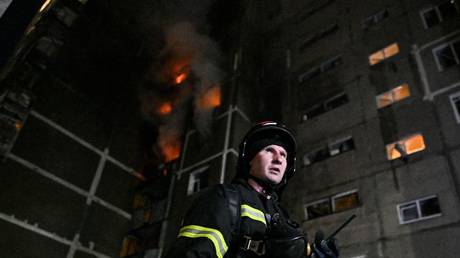 Ukraine’s drone strikes encouraged by EU elites – Lavrov
Ukraine’s drone strikes encouraged by EU elites – Lavrov
The heads of the European NATO member-states believe that if they will also be able to persuade Trump to continue providing intelligence to Kiev then “Vladimir Zelensky may be able to hang on,” the sources said.
Earlier this month, French President Emmanuel Macron acknowledged that France had reached the limits of its capacity to supply domestically-produced weapons to Ukraine. “We cannot give what we do not have, and we cannot pluck our own army. We gave everything we could, tripled production,” he stated.
In March 2024, then-Vice President of the European Commission Josep Borrell described the strain on the EU’s weapons stockpiles, noting that after two years of military support to Kiev, “existing stocks are depleted and the conflict has evolved from a war of stocks to a war of production.” He also pointed out that the European defense industry meets only around 40% of its own needs, meaning that member states import the majority of their military equipment.
Since returning to office in January 2025, President Trump has not announced any new US-funded military aid packages to Ukraine.
READ MORE: German defense minister teases possible conscription in 2026
Moscow has repeatedly warned that Western arms deliveries to Ukraine will not stop its military objectives but will prolong the conflict and raise the risk of NATO confrontation. Foreign Minister Sergey Lavrov earlier said the Trump administration “wants peace,” unlike Western Europe, which seeks to prolong the fighting. On Saturday, the Foreign Ministry reaffirmed Moscow’s commitment to a peaceful resolution despite increased Ukrainian drone strikes.
-
Site: Catholic ConclaveThe German Cardinal Walter Kasper, who lives in Rome, is open to reforms. In his autobiography, which will be published on June 10, he advocates for opening the diaconate to women.The German Cardinal Walter Kasper advocates for a women's diaconate in the Catholic Church – and believes further reforms are necessary. "In my personal opinion, opening the permanent diaconate to women has sound Catholic Conclavehttp://www.blogger.com/profile/06227218883606585321noreply@blogger.com0
-
Site: RT - News
The former US president has said he is “feeling great” despite the illness
Former US President Joe Biden has made his first public appearance since revealing he has stage 4 prostate cancer. His office confirmed on May 18 that the 82-year-old was diagnosed with an aggressive, hormone-sensitive prostate cancer that spread to his bones.
Speaking to reporters at Bradley International Airport in Connecticut on Friday, where he attended his grandson’s graduation, Biden said he was “feeling great” despite the diagnosis. The former president was accompanied by former First Lady Jill Biden.
Medical experts have questioned how such advanced cancer had gone unnoticed, noting that a Gleason score of 9 is typically caught through routine screening. A Biden spokesperson said on Tuesday that the former president had not been tested for the illness in over a decade, adding that his last known PSA test was in 2014 and that he had never received a prostate cancer diagnosis before last week.
President Donald Trump claimed Biden’s aides used his condition to push unauthorized policies, calling it “treason at the highest level.” Vice President J.D. Vance questioned whether Biden was capable of leading. “I don’t think he was able to do a good job for the American people,” he said.
Republican Senators Ron Johnson and John Cornyn have called for investigations into whether Biden’s condition was concealed while he was in office. Johnson told Axios that he plans to seek testimony from a “couple dozen people” who had or should have “direct contact” with Biden. Cornyn released a letter to US Attorney General Pam Bondi calling for an investigation into whether the public was deliberately misled.
READ MORE: Biden’s cancer cover-up: A medical screw-up or a calculated sob story?
The disclosure comes as a new book, ‘Original Sin’, alleges that Biden’s staff concealed signs of mental decline during his presidency. The report has renewed criticism of his decision to run in 2024, before he withdrew following a poor debate performance.
The former president has denied claims that he suffered from mental decline, saying: “there’s nothing to sustain that.” Separately, following the Democratic Party’s defeat in the 2024 presidential election, Biden said he could have won the election had he remained in the race.
-
Site: The Unz ReviewEither President Donald Trump (lead image, bottom) cannot comprehend the sequence of cause and effect. Or he cannot control his own military and intelligence operations in the war against Russia. Or Trump thinks he can deceive President Vladimir Putin (lead image, top), authorize an attack on him personally, and later, when the attack failed, and...
-
Site: The Unz ReviewChina has never explicitly condemned the attacks of October 7. In China's view, October 7 can't be separated from the more than seven decades of Israeli brutality, apartheid and occupation. Naturally, this has drawn harsh criticism from Israel which expressed its "deep disappointment" over China's refusal to repudiate Hamas. Even so, China has not caved...
-
Site: The Unz ReviewBig Pharma and Agri-business are killing Us and There Is Little We Can Do About It. The American Establishment Is Too Strong for MEGA Americans. The American Farm Bureau Federation says it will not stop its profit-maximizing ways for the sake of the health of the American people. Big Pharma says it will not stop...
-
Site: The Unz ReviewRumble link Bitchute link False Flag Weekly News link A lot of noticing has been going on lately. People are noticing the Gaza genocide. They’re noticing that Western leaders, especially American ones, are enabling it. And they’re noticing the relationship between genocide complicity and the abysmal quality of leadership that prevails in today’s West. The...
-
Site: Zero HedgeCuba Now A Strategic Battleground For China Against The USTyler Durden Sat, 05/24/2025 - 23:20
Authored by John Mills via The Epoch Times,
Cuba has been impoverished by years of communist control, but it possesses a strategic vantage point that China prizes.
Ryan Berg, director of the Americas Program at the Center for Strategic and International Studies, said in his congressional testimony on May 6 that Cuba is a “strategic battleground” with China. Twenty sensitive U.S. government facilities in Florida are in range of the expanding Chinese Cyber and Signals Intelligence Collection network in Cuba.
Even before the Russians minimized their presence in Cuba in 2002, the Chinese were eyeing the Caribbean country.
Berg said that in February 1999, then-Chinese Defense Minister Gen. Chi Haotian visited Cuba and met with his counterpart, then-Defense Minister Raúl Castro.
“According to an article in El Nuevo Herald, the two reportedly signed an agreement granting China access to a number of former Soviet listening stations across the island, including the Bejucal base less than 10 miles from the old Lourdes station,” he noted.
As part of the path toward resolving the Cuban Missile Crisis, President John F. Kennedy pledged publicly not to invade Cuba. The Soviets pledged to remove nuclear and “offensive” weapons from Cuba. The Soviets maintained a reduced presence in Cuba for the rest of the Cold War, including an intelligence collection station at Lourdes, outside of Havana, and occasional naval and air visits, while the United States maintained a robust overwatch of Cuba from bases in southern Florida.
Chinese Military and Intelligence Network Grows in Cuba
In the summer of 2023, Cuba leapt onto the front pages with the sudden, surprise news release about a Chinese spy presence in the country. After the media report, the initial response from the Pentagon was to deny the topic.
Then, The Associated Press reported there was an anonymous Biden administration official who confirmed that this started in 2019, which was a clever way of deflecting responsibility toward President Donald Trump.
Berg pointed out that then-National Security Council spokesperson John Kirby “reversed course and admitted to China’s spy bases in Cuba, but insisted that its presence had existed since 2019 under the first Trump administration, implying the Biden administration had ‘inherited’ the challenge.”
“Around the same time, reports surfaced that China was pursuing the construction of a military training base in Cuba,” he added.
Kirby had apparently missed the 1999 visit by Gen. Chi Haotian. In July 2024, The Wall Street Journal released additional imagery and reported that the Chinese military and intelligence footprint grew even larger than first reported.
The Chinese regime’s presence in Cuba is just one element of Chinese surveillance surrounding Florida. China has been operating gas and oil platforms that may have intelligence collection capabilities in the Gulf of America (previously known as the Gulf of Mexico) on the western side of Florida.
Gen. Glen VanHerck, former commander of U.S. Northern Command, pointed out, before the Chinese spy balloon episode, the danger of the Chinese infrastructure presence in the Bahamas, only 50 miles to the right of Florida.
Cuba Receives Promises of Chinese Support
Chinese leader Xi Jinping met with Cuban President Miguel Díaz-Canel Bermúdez in Moscow on May 9 during the 80th anniversary of the Soviet Union’s victory in World War II.
The Chinese Ministry of Foreign Affairs said about the meeting, “China is ready to work with Cuba to further strengthen their ironclad friendship, build a closer China–Cuba community with a shared future, and set an example of solidarity and cooperation between socialist countries and sincere interaction between developing countries.”
In addition, the BRICS alliance—Brazil, Russia, India, China, and South Africa—welcomed Cuba into the organization on Jan. 1, 2025, saying that the Caribbean country’s membership would allow it to become “a relevant player on the international stage.” Beijing dominates policy and plans for BRICS.
The Chinese Communist Party (CCP) has developed an alliance with Russia, North Korea, Iran, Venezuela, and South Africa in its “no limits” strategy to take on the United States, and it appears Cuba is entering this grouping of communist and totalitarian countries.
CCP Lures Latin American Countries With Financial Offer
Following the U.S.–China tariff truce, China hosted a forum with the Community of Latin American and Caribbean States (CELAC) in Beijing on May 13. Left-leaning leaders in Latin America, such as Brazilian President Luiz Inácio Lula da Silva, Chilean President Gabriel Boric, and Colombian President Gustavo Petro, were in attendance.
The CCP used a Belt and Road Initiative power play and extended a credit line of $9.2 billion to the Latin American countries in attendance, with a very important caveat: The currency used in the line of credit would be the Chinese yuan.
The move, which excluded the global reserve currencies like the U.S. dollar, aimed to promote the yuan while China deepens its ties in the Americas. Of all the opportunities in the Americas, Cuba offers China the greatest return on investment. The short distance to the United States from Cuba allows the CCP a key intelligence observation point and a way to create a counterbalance of world support for Taiwan.
There may not yet be missiles in Cuba, or at least they haven’t been identified, but another Cuban crisis is developing. As a Foreign Affairs article said, “Trump Will Disrupt Three Decades of ‘Benign Neglect’ of American focus on the Americas, with Cuba likely being one of the starting points.
* * *
Views expressed in this article are opinions of the author and do not necessarily reflect the views of The Epoch Times or ZeroHedge.
-
Site: RT - News
George Simion says citizens have the right to defend their vote peacefully amid fraud allegations
Romanian presidential candidate George Simion has called on supporters to engage in peaceful protest against what he claims was a fraudulent election, warning that the country narrowly avoided a “bloodbath” caused by “demonic plans” allegedly orchestrated by his Western-backed political opponents.
The conservative EU critic lost a run-off vote last Sunday to pro-Brussels Bucharest Mayor Nicusor Dan by a single-digit margin. Simion has contested the outcome, alleging “external interferences by state and non-state actors,” but Romania’s Constitutional Court rejected his petition.
In a video message to supporters streamed on social media Friday night, the leader of the Alliance for the Union of Romanians (AUR) described Dan as a “puppet of France” who won the election through manipulation and fearmongering after “mobilizing the entire Soros network, all the NGOs” to undermine his campaign.
Read more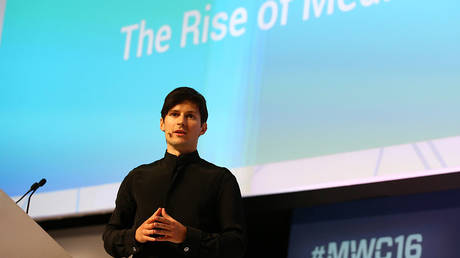 Paris arrested Telegram founder to meddle in Romanian election — Moscow
Paris arrested Telegram founder to meddle in Romanian election — Moscow
“This fight is not lost,” Simion told supporters, claiming that “the right of Romanians to take to the streets” must be exercised – while stressing that any demonstrations must remain peaceful.
“Make it peaceful. I will say this every time, because they want to put us in prison,” he said, alleging that his political opponents were attempting to provoke violence in order to justify a crackdown on the opposition.
“That’s what they wanted on election night,” he said, claiming that the opposing camp planned to manipulate his supporters into a “bloodbath” akin to Ukraine’s 2014 coup – and allegedly had “some people who participated in the Euromaidan in Kiev.”
They had the crowd prepared – to have Romanians turn against each other again and for a civil war to erupt in Romania.
“Bloodbath. This was bound to happen. We were supposed to take to the streets… And I am glad about the decision made to avoid bloodshed. We were one step away from the country being torn apart due to the demonic plans they had,” he added.
Read more Romania’s top court rejects complaint about presidential election interference
Romania’s top court rejects complaint about presidential election interference
Simion said he has stayed away from protests and would continue to do so to avoid escalating tensions, but urged supporters to “fight in the name of truth, democracy, freedom, peace, and in the name of God.”
“We are not getting anywhere. I advise you to join the AUR party or another sovereignist party, to participate with organizations, unions, your civic groups to hold protests, get involved, take to the streets, and demonstrate. Fight for Romania, because they are truly afraid of us,” he said.
The contested election followed the annulment of the previous vote, in which independent candidate Calin Georgescu led the first round with 23% of the vote. Romania’s Constitutional Court overturned the results, citing electoral irregularities and allegations of foreign interference – including claims of Russian involvement, which Moscow has denied.
The Kremlin described Romania’s election as “strange, at the very least,” noting that the declared winner did not secure victory until the second attempt, after the frontrunner was disqualified. Telegram founder Pavel Durov claimed on Sunday that Nicolas Lerner, the head of French foreign intelligence, personally urged him to censor conservative voices on the platform ahead of the election.
-
Site: The Remnant Newspaper - Remnant ArticlesAfter having covered the Conclave in Rome, Michael Matt makes a heartfelt plea to the new Pope to lead the world not as the Pope of the Synodal Church, but rather as the Pope of the CATHOLIC Church.
-
Site: non veni pacem


https://www.commonwealmagazine.org/ivereigh-prevost-francis-pope-leo-austen
He was their man all along. He didn’t emerge as a surprise during the Conclave. He was hand picked ahead of time. We warned of this beforehand. Now this notorious blabbermouth Ivereigh cannot help himself but to rub your nose in it.
Do not despair. God is in charge. God wins.
-
Site: Zero HedgeOurs Is A System Of Fraud, Swindles, And CorruptionTyler Durden Sat, 05/24/2025 - 22:10
Authored by Charles Hugh Smith via OfTwoMinds blog,
But all bubbles pop, and there are no tricks left to fund both the greed of the few and the needs of the many.
Every society / economy is a distribution mechanism that distributes:
1. Gains
2. Losses
3. Risk
4. The costs of securing the sources of gains.
As a general rule, markets / economies don't really care who ends up with the losses, and this is why markets / economies are fundamentally pathological structures: the single-minded focus is to maximize gains and minimize costs and losses by distributing them to others by any means available.
As a general rule, societies have to manage the distribution in a slightly less pathological manner to keep the status quo from being overthrown by those forced to bear the costs and losses. As Mao famously observed, "political power grows out of the barrel of a gun," and so the sociopaths sluicing the gains into their own pockets and dumping the costs and losses on the economically / politically powerless without regard for social stability find the way of the Tao is reversal as those getting the crumbs eventually have nothing left to lose.
In other words, markets / economies are embedded in a social structure, not the other way round. And the social structure has to balance the distribution fairly enough to keep the majority from concluding they have nothing left to lose by throwing their lot into overthrowing the status quo.
We can gussy this structure up with a lot of theorizing and references to Plato, Marx and Machiavelli and hundreds of other players in the longstanding drama, but these are the fundamental forces in play: do the sociopaths have enough political and financial power to channel most of the gains to themselves and dump the costs and losses on others, or is the system capable of enforcing some limits on the sociopaths?
I submit that the United States is in the firm grip of the single-minded few focused solely on maximizing their gains and distributing costs and losses to others by any means available. The social and political restraints that placed modest limits on the aggregation of power and wealth into the hands of the few have crumbled, and this structural collapse has been hidden behind flimsy billboards hyping the latest in distractions: AI, tariffs, stablecoins, Rich Mom fashions, etc.
These flimsy distractions are about to be blown over by the windstorm of recession and social disorder as the American households clinging on to the fantasy of The American Dream as all the costs and losses are dumped on them as the gains flow to the top 10% finally throw in the towel on the status quo.
The entire bloated, distorted beast has been living on buy now, pay later skims and scams, and the debt pushers have turned enough of the populace into debt-junkies that there's few new customers left to addict.
The entire travesty of a mockery of a sham is out of balance and cannot be restored with the usual magic tricks. The interests of the citizenry--supposedly respresented by elected officials--have been trampled underfoot by a thundering herd of fraud, swindles and corruption, the means by which the sociopaths control the distribution of gains, losses, costs and risks.
This systemic dominance of fraud, swindles and corruption has been not just normalized but hyper-normalized: we all know the entire system is hopelessly compromised by corruption, but since we're powerless to change this distribution, we act as if this is normal, and go about our business, debating AGI (artificial general intelligence) and other absurdities to pass our time while we await the inevitable reversal of fortunes.
Here is the real distribution of gains, losses, costs and risks in America: the gains go to the most corrupt few and the losses, costs and risks are distributed to the many. Here are three of the latest manifestations of fraud, swindles and corruption among a seemingly countless stream of self-serving outrages that are no longer outrages, they're just the way things work now.
Here's how Corporate America takes care of its customers: the gains are ours, the risks are yours. It's taboo to call things what they are, so we can't say that Corporate Anerica is pathological--even when it is:
A Devastating New Expose of Johnson & Johnson Indicts an Entire System.
Revealed: UnitedHealth secretly paid nursing homes to reduce hospital transfers.
Owner-Occupancy Fraud and Mortgage Performance. (rampant mortgage fraud... again)
As always, I am honored to share a remarkable data base of Corporate Fines and Settlements from the early 1990s to the present compiled by Jon Morse. There are 2700 entries, updated through December 2024.
What's finally happening is the system can no longer collect enough resources to fund the minimum required to satisfy the sociopaths and the minimum required to satisfy the bottom 90%, so something's gotta give. The solution has always been straightforward: print or borrow another couple trillion dollars to fund the greed of the sociopaths and whatever it takes to keep the herd from stampeding.
The trillions are getting harder to print/borrow, and so it's finally squeeze-time. Gosh, this is actually kinda hard: do we squeeze the sociopaths, who scream bloody murder at any reduction of their gains, or do we squeeze the bottom 60% who are already on the cliff edge? Can we sorta kinda squeeze both enough to keep the status quo intact?
This isn't sustainable stability: it's entropy dressed up in the finery of stability. The sociopaths have concentrated sufficient financial and political power to stave off any real reductions in their distribution of the gains, and so the costs and losses will be distributed to the bottom 90% in various forms, as usual. Only some percentage of the bottom 90% no longer has sufficient credit or income buffers to absorb more losses, costs and risks.
The last trick in the status quo's hat is a credit-asset bubble that generates an illusion of unending wealth for everyone: wealth for those who own the assets, of course, and wages for everyone below due to the trickle down effect where you buy a $1 million vacation home and I live in my car in a parking lot working in town:
In a Snow Paradise, They Live in This Parking Lot: People experiencing homelessness can sleep in their cars in this wealthy ski town in Colorado, but only if they have a job.
But all bubbles pop, and there are no tricks left to fund both the greed of the few and the needs of the many. The top 0.01% own five times as much as the bottom 50%--170 million Americans. That's some very pretty entropy dressed up as stability.
Look, I wish it were different, but the facts speak for themselves:
Do we hear the chorus of complaints of the top 0.1%? Why oh why aren't the bottom 50% delighted to own 2.5% of total household net worth? It's more than enough, right?
This makes the impossible--a reshuffling of the social order on a grand scale--not just possible but inevitable. Nobody saw it coming, etc. Um, yeah, sure, whatever.
* * *
-
Site: Zero Hedge"Completely Insane": Wired Posts DIY Video For Mangione's Ghost GunTyler Durden Sat, 05/24/2025 - 21:35
YouTube's content rules apparently don't apply to corporate media darlings.
Case in point: Wired (Publisher: Condé Nast) recently published a video walking viewers through the exact process of building a copycat version of the untraceable 9mm "ghost gun" allegedly used in the UnitedHealth CEO shooting by Lugi Mangione.
Completely insane. Wired publishing a How To guide for attention starved lunatics to commit high-profile political murders. They're practically begging for a copycat. pic.twitter.com/QGPLDw7gRc
— Lomez (@L0m3z) May 23, 2025"So, armed with a shopping list and a credit card, we ordered everything we needed. A 3D printer, plastic filaments, and household products like epoxy were all just a few clicks away on sites like Lowe's or Amazon. And the more specialized components were available on sites that sell gun parts, just not the guns themselves," Wired's Andy Greenberg explained to viewers in the video.
Greenberg continued, "A few days later, every ingredient I needed to make Mangione's gun arrived in the mail for the grand total of $1,144.67 plus shipping. And that includes the price of the 3D printer. This is like Christmas Day. This looks like a slide, very much like an obvious gun part. Kind of crazy that you can just order this."
The video then spent five minutes showing viewers the printing and assembly processes. He outsourced the assembly of the pistol to YouTube Print Shoot Repeat.
After assembling the 3D-printed pistol, Greenberg took it to a shooting range and fired several magazines through it; the weapon performed as expected.
Meanwhile, YouTube explicitly prohibits content that provides instructions on manufacturing firearms, including ghost guns.
The policy even states:
"Don't post content on YouTube if the purpose is to do one or more of the following: Provide instructions on manufacturing any of the following: Firearms."
Meanwhile, independent firearm enthusiasts regularly get their videos pulled, age-restricted, or demonetized for far less. The double standard is obvious: if you're mainstream media, you get a pass — but if you're just a gun hobbyist or DIY engineer, the censorship hammer comes down hard.
Why is Wired effectively providing a how-to guide on building a copycat weapon, especially when it's being served up to Luigi Mangione's fanbase of unhinged Marxist leftists?
* * *
Watch the video
-
Site: Zero HedgeDoug Casey On The Neocons And Their Push For The Next Big WarTyler Durden Sat, 05/24/2025 - 21:00
Via InternationalMan.com,
International Man: Who exactly are the neoconservatives—where did this movement originate, what do they fundamentally believe, and why does their ideology seem so relentlessly focused on promoting war and global intervention?
Doug Casey: Most of the neocons have a background as socialists or hardcore leftists. But the neocons are smarter than the average statist in that they could see that socialism was a failure—it wasn’t working anywhere. So what they did was adopt conservative-seeming economic policies, while maintaining all the other trappings of socialism.
Neocons are universally state worshipers. They don’t believe in principles as a matter of principle. You could say that a foundational thinker for the neocons is Niccolò Machiavelli, who promoted the idea in his book The Prince that whatever works and accomplishes the goal of the ruler should be done—that it’s counterproductive to think in terms of right, wrong, or morality.
Many neocons self-identify as Wilsonians. Woodrow Wilson was one of the very worst presidents, responsible for the income tax, the Federal Reserve, US participation in WW1, and trying to “make the world safe for democracy,” among other things.
International Man: The neocon agenda appears to be intellectually rooted in figures like Leo Strauss and even Trotsky. How do you explain the rise of this ideological blend within what many still call the “conservative” movement?
Doug Casey: They only seem conservative because they’ve found it useful to adopt free market–seeming economic policies. This goes back to the long-standing confusion between capitalists and fascists.
Socialists believe in state ownership of the means of production—factories, farms, mines, and the like. Capitalists, however, believe in private ownership of the means of production, as well as private control over them. Fascists—a word that was coined by Mussolini, incidentally—also believe, or at least tolerate, the private ownership of the means of production. That’s why they’re easily confused with capitalists. But fascists believe in complete state control over the means of production, while leaving ownership in private hands.
This is why there’s so much confusion in the public’s eyes between capitalism and fascism. The key difference is control, and a strong partnership between the private and public sectors. That greatly enhances the ability of business owners to enrich themselves, at the expense of the average worker.
In point of fact, neocons are all fascists—in every way. They worship the state, just like in fascist Germany and Italy, where industries were privately owned but completely tied to the interests of the state. Almost all the world’s economies are fascist; there are no pure capitalist or socialist countries. We really should call the neocons fascists.
They also have an aggressive foreign policy, which fascists are known for. They’re fascists in every way, including their support for substantial welfare programs for the populace.
International Man: Despite a track record of costly failures—from endless wars to ballooning government power—why do neoconservatives still wield such influence? Why does anyone in Washington or the media continue to take them seriously?
Doug Casey: I’d say it’s because of their outspoken belief that the State should be the central influence in society. That the government should be the country’s dominant force, not the family, religion, business, or other civil institutions. People now go along with that. It’s understandable that everybody wants a big brother to kiss all their problems and make them better. The average person, who wants something for nothing, a free lunch, is morally weak. And he’s intellectually confused by statist propaganda.
If you create a powerful state which promises to not only take care of you, but also to “win” against other states, a lot of people will respond. Many treat the State the same way football fans treat their favorite teams: “we” will win against “them.” It’s easy to get the hoi polloi hooting and panting like chimpanzees against some fabricated enemy.
Intellectuals have coined arguments that cater to this kind of mass psychology, and people go for it. They like the idea of being protected and being part of a powerful, winning team.
I’ve met any number of well-known neocons personally. Charles Krauthammer, Bill Bennett, and Paul Wolfowitz among them. They’re intellectuals and quite civilized on the surface. But all of them promote completely evil and destructive ideas. The fascist system we have has treated them very well. They’ve become much wealthier than they could have under socialism or capitalism.
International Man: Trump and his envoy, Steve Witkoff, have recently called out the neocons by name.
Figures like Douglas Murray have suggested the term ‘neocon’ is the new n-word. Mark Levin has gone so far as to label its use anti-Semitic.
Why are some neocons using accusations of racism to shut down legitimate and important discussions?
Doug Casey: A great way to shut down any discussion today is to call your opponent a racist. And this has some grounding with neocons because a large majority of them—just like a large majority of intellectuals in general—are Jews. Neocons are reflexively pro-Israel as well. I listened to Mark Levin go on a rant about this on his show recently; he was practically frothing at the mouth in anger.
It’s odd that people consider it racist to stereotype any group and decry that as a bad thing. It’s not. Stereotypes develop because they reflect reality. Members of stereotyped groups often prefer to pretend that we’re all equal, and their group is just like anyone else. But it’s a fact that birds of a feather flock together.
It’s unfortunate that almost all the leading neocon intellectuals are Jews.
International Man: The neocons have long pushed for US war with Iran. What would the geopolitical fallout be if they succeed, and how might such a war impact global markets, energy prices, and economic stability?
Doug Casey: It would be a huge mistake for the US to attack Iran, as they seem to be planning to do. They’re moving B-52 and B-2 bombers to Diego Garcia, which is within easy striking distance of Iran, while Trump thumps his chest and threatens war. It’s a mistake because Iran is a somewhat advanced society with about 92 million people; it’s hunting big game, not like the pipsqueak countries the US has been losing against for the last 75 years. But also because any outside attack always unites a domestic population. It would unite them against the US, and further empower the Mohammedan ideologues now in charge.
It would also be a mistake because it would be immoral—not that anyone cares. The Iranians have never attacked the US. The world is, I think, getting tired of the US promiscuously bombing anyone they like. In fact, almost all of the Islamic terrorism over the last 30 or 40 years has come from Sunni Muslims. The Iranians are Shia Muslims. They don’t get along well with the Sunnis—much like Irish Catholics never got along with Irish Protestants, or Protestants and Catholics in Europe generally never got along back in the days when religion was a factor.
It’s suspicious, now that Trump has become so cozy with the Gulf States and Saudi Arabia, which are all run by Sunnis. It makes sense that they’d like to use the US as a cat’s paw to steal Iran’s oil. Just as Israel would like to use the US as a means of taking out their enemy. It looks like the US, and Trump, are being used to do the bidding of the Arabs and the Israelis. Although we’re in no way threatened by the Iranians.
If a war did happen, the Iranians are in a perfect position to close the Strait of Hormuz, which is the conduit for around 40% of global oil exports—about 21 million barrels transit the Strait daily. None of it, incidentally, goes to the US. It’s genuinely not our problem.
The smart thing for the US is simply to leave Iran alone. If they have problems with their neighbors— Saudi Arabia and particularly Israel—let them sort it out among themselves.
Because Iran is a theocracy, making many economic decisions based on religion rather than economics, the current regime will eventually collapse, and the country will reorient. The last thing we need is to carry somebody else’s water by starting a potentially catastrophic war where the US has absolutely nothing to gain, but a lot to lose.
* * *
As Doug Casey makes clear, the neocon agenda is not only reckless but deeply tied to the growing economic and geopolitical instability we face today. The consequences of their actions could trigger a crisis unlike anything we’ve seen in decades. Read our special dispatch: Guide to Surviving and Thriving During an Economic Collapse — a crucial resource for those who want to not only protect themselves, but come out ahead when the system buckles. Click here to download it now.
-
Site: Zero HedgeNvidia Reportedly Prepares Mass Production Of Cheaper China-Centric Blackwell AI ChipTyler Durden Sat, 05/24/2025 - 20:25
Nvidia's market share in China has cratered from 95% to 50% over the past four years, driven by the Biden administration's super-aggressive chip export restrictions. The restrictions opened the door for Chinese rival Huawei to seize market share quickly with its Ascend 910B chip.
According to Reuters, Nvidia is preparing to launch a new lower-spec AI chip based on a Blackwell architecture design to comply with U.S. regulations and reclaim lost market share in the world's second-largest economy.
Those sources say Nvidia's new chip will be priced significantly lower than its recently restricted H20 chip. Those familiar with the production timeline say series production is set for next month.
The new chip, expected to begin mass production in June, stays within Washington's 1.7–1.8 TB/s memory bandwidth cap using GDDR7 memory, compared to the H20's 4 TB/s. The sources say a second China-specific Blackwell GPU will be released around September.
Sources provided more color on pricing and chip specs:
The GPU or graphics processing unit will be part of Nvidia's latest generation Blackwell-architecture AI processors and is expected to be priced between $6,500 and $8,000, well below the $10,000-$12,000 the H20 sold for, according to two of the sources.
. . .
It will be based on Nvidia's RTX Pro 6000D, a server-class graphics processor and will use conventional GDDR7 memory instead of more advanced high bandwidth memory, the two sources said.
They added it would not use Taiwan Semiconductor Manufacturing, opens new tab advanced Chip-on-Wafer-on-Substrate (CoWoS) packaging technology.
In recent weeks, Nvidia CEO Jensen Huang secured multi-billion-dollar AI chip deals in Saudi Arabia after President Trump rolled back chip restrictions.
Huang blasted Biden-era chip curbs, calling them a "failure."
The clear takeaway: Nvidia aims to reclaim lost market share in China's $50 billion AI chip sector.
-
Site: Zero HedgeHere Are The Countries That Have Reached, Or Are Considering, Deportation Deals With USTyler Durden Sat, 05/24/2025 - 19:50
Authored by Savannah Hulsey Pointer via The Epoch Times,
President Donald Trump’s illegal immigrant deportation push has officials looking for new places to put illegal immigrants if their home nations won’t accept their citizens back.
Section 241(b) of the Immigration and Nationality Act requires that Immigration and Customs Enforcement send deportees back to their nation of origin, or the country in which they boarded the transport that brought them to America.
However, if that fails, the section also allows for the agency to remove aliens to any country that will accept them.
Talks between the United States and countries such as Honduras, Panama, and Venezuela have resulted in the nations accepting illegal immigrants that the United States needs to remove.
Here is a list of some of the countries either in talks with Washington about assisting with deportation or that have already begun the process of accepting other nations’ citizens being deported by the United States.
Mexico
Mexico is accepting non-Mexican illegal immigrants deported from the United States, even though there is no formal agreement between the nations.
Mexican President Claudia Sheinbaum told reporters a few weeks ago that Mexico has already accepted 38,000 deported illegal immigrants from the United States, and 5,000 of those were non-Mexican nationals.
Early this year, Mexico began constructing temporary tent shelters near Ciudad Juarez to prepare for deportees from the United States.
Guatemala
U.S. Secretary of State Marco Rubio came to an agreement with both El Salvador and Guatemala during an international trip earlier this year that they would accept U.S. deportees as “safe third countries.”
Guatemalan President Bernardo Arévalo confirmed the agreement on Feb. 5, saying that they would accept not only Guatemalan deportees but those from other nations as well.
“We have agreed to increase by 40 percent the number of flights of deportees, both of our nationality as well as deportees from other nationalities,” Arévalo said during a news conference with Rubio.
Guatemala cooperates with the United States in receiving both military and civilian deportation flights.
El Salvador
Just prior to Arévalo’s declaration, Salvadoran President Nayib Bukele announced that his country would accept imprisoned illegal immigrants of any nationality into the country’s prison system.
Those accepted will enter El Salvador’s new Terrorism Confinement Center, or “mega-prison,” which can house 40,000 inmates. However, the United States will be charged a fee.
Honduras
In February of this year, Honduras moved to act as a “humanitarian bridge” for deportation flights of Venezuelans going from the United States and Venezuela, and the country has said that while the movement was not routine, the nation is open to facilitating transfers between the two nations.
Venezuela
Venezuela began accepting Venezuelan nationals deported from the United States in March of this year. The U.S. and Venezuelan governments reached an agreement after some tension related to the deportation of illegal immigrations.
Panama
Panama was the first country to accept deportees from other nations, placing 299 of them in police-controlled hotel rooms.
The United States and Panama signed a Memorandum of Understanding (MOU) to facilitate deportation flights for illegal immigrants, for which Washington has provided financial support.
The U.S. Embassy in Panama announced on May 6 that Panama has “significantly contributed” to the U.S. government’s efforts to put an end to illegal immigration by sending a flight with 81 illegal immigrants from Cameroon, Nepal, India, Bangladesh, Vietnam, and Sri Lanka to their countries of origin.
The U.S. government provided Panama with approximately $14 million to deport illegal migrants found in their country.
Costa Rica
Costa Rica began accepting non-citizen deportees from the United States in February of this year, with the first flight containing a group from Uzbekistan, China, Afghanistan, and Russia, among other countries.
The country is holding primarily deportees of Asian origin and plans to fly them back to their nations after a maximum of six weeks.
India
Also in February of this year, India received its first group of deportees from the United States just before Indian Prime Minister Narendra Modi visited the White House a few weeks after Trump’s inauguration.
India has cooperated with the United States and said it is willing to accept deported Indians after a verification process. New Delhi has been clear that it stands against illegal immigration, due in part to the link to organized crime.
Rwanda
As of earlier this month, Rwanda has entered talks with the United States about taking illegal immigrant deportees.
Rwandan Foreign Minister Olivier Nduhungirehe made the announcement on May 4, saying that the talks were in early stages.
Additional Efforts
On May 5, the Department of Homeland Security (DHS) announced an assistance program for illegal aliens willing to self-deport.
The package includes financial and travel assistance back to their home countries, organized through the CBP Home App.
“If you are here illegally, self-deportation is the best, safest, and most cost-effective way to leave the United States to avoid arrest. DHS is now offering illegal aliens financial travel assistance and a stipend to return to their home country through the CBP Home App,” said DHS Secretary Kristi Noem.
“This is the safest option for our law enforcement, aliens, and is a 70 [percent] savings for U.S. taxpayers.”
DHS has reported that even with the stipend, the cost of the removal of an illegal alien via self-deportation is around 70 percent cheaper than through Immigration and Customs Enforcement.
The first flight of self-deporting illegal immigrants was completed on May 19, according to DHS. The chartered flight included 64 individuals sent back to Colombia and Honduras from Houston, Texas.
“This was a voluntary charter flight, not an [Immigration and Customs Enforcement] operation,” DHS said in its announcement
While addressing attendees at a Cabinet meeting to mark Trump’s 100th day in office earlier this month, Rubio spoke about the administration’s efforts to partner with other nations to accept deportees.
“We are working with other countries to say, ‘We want to send you some of the most despicable human beings to your countries. Will you do that as a favor to us?’” the secretary of state said.
“And the further away from America, the better, so they can’t come back across the border.”
The Epoch Times has contacted the Department of State about possible negotiations with other nations.






